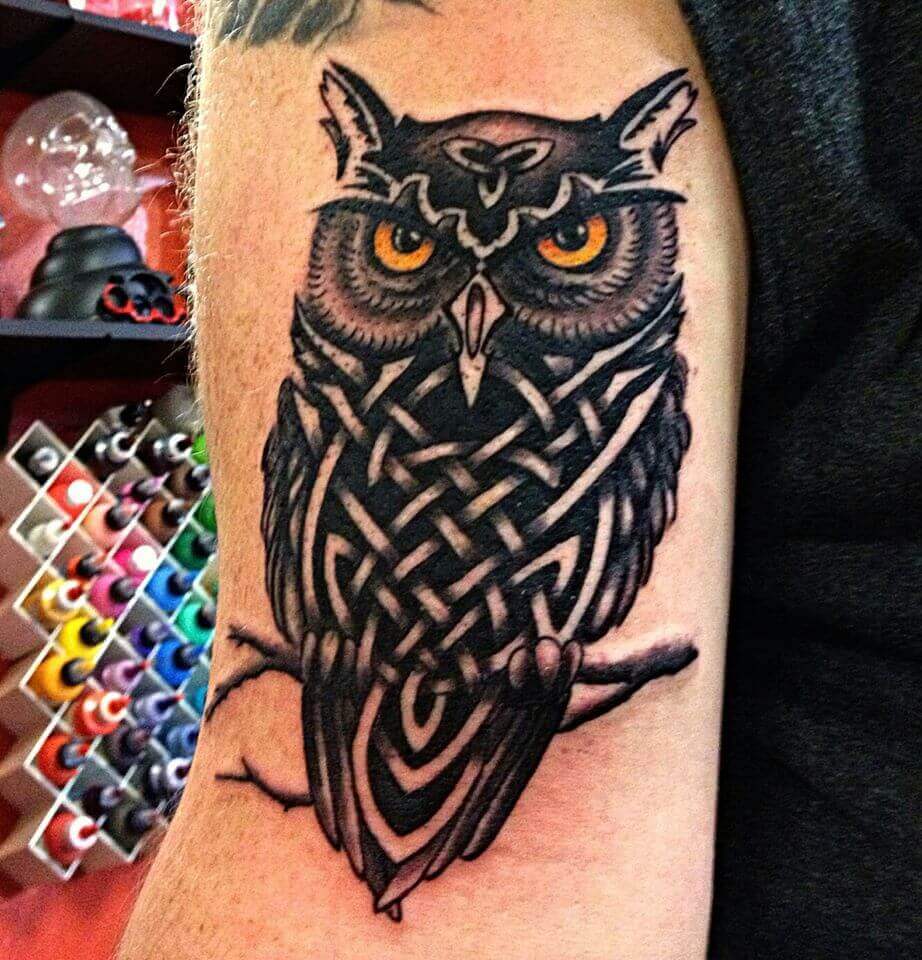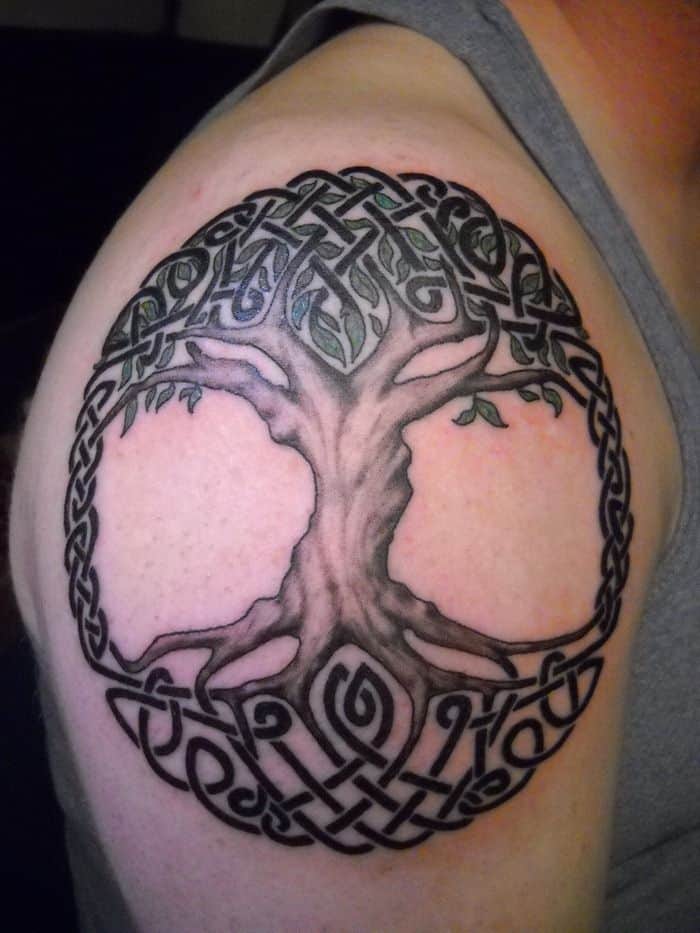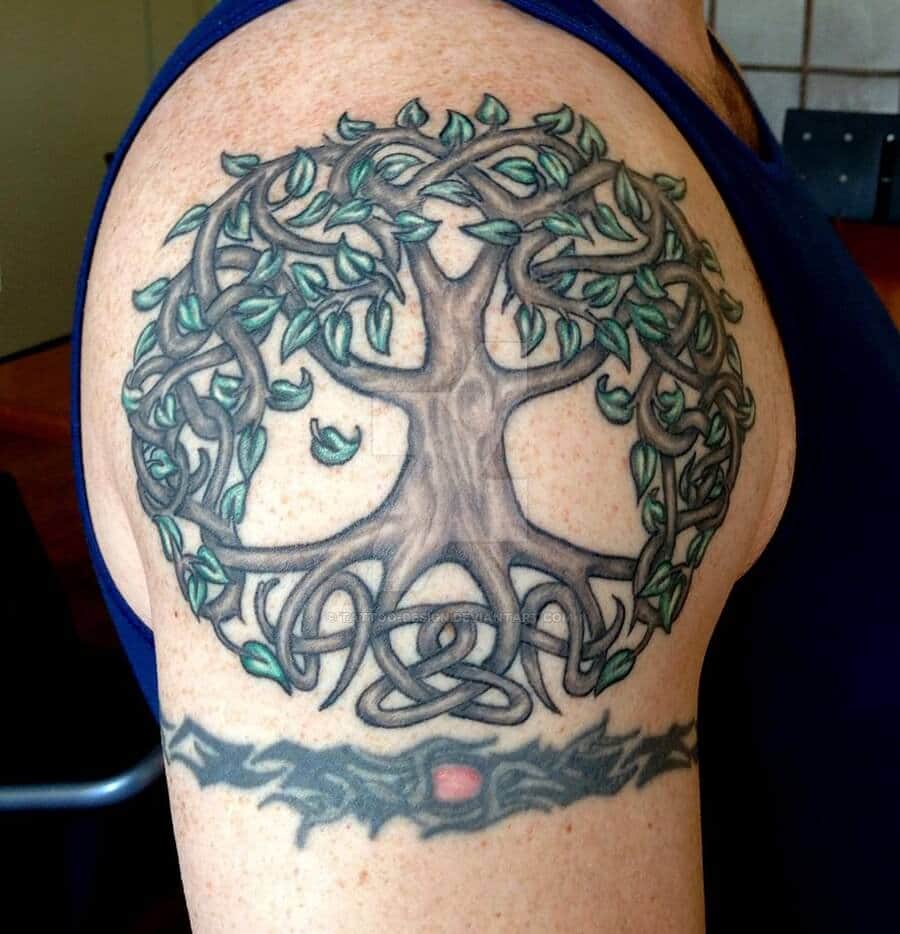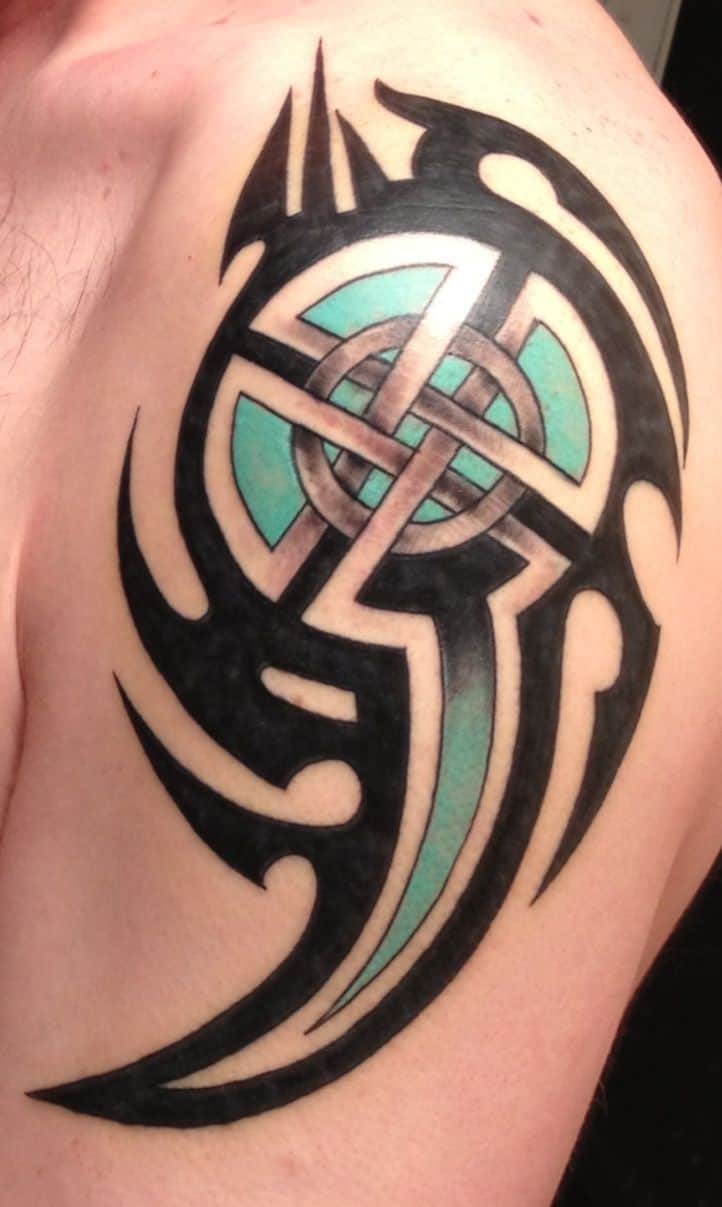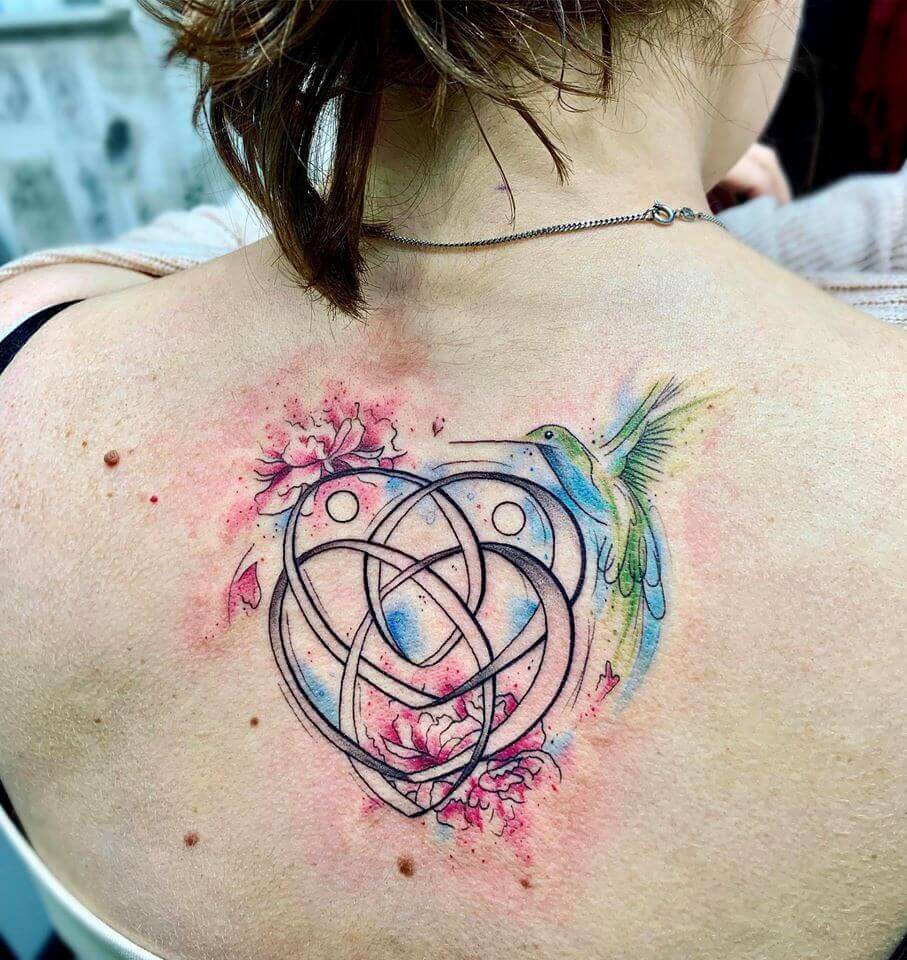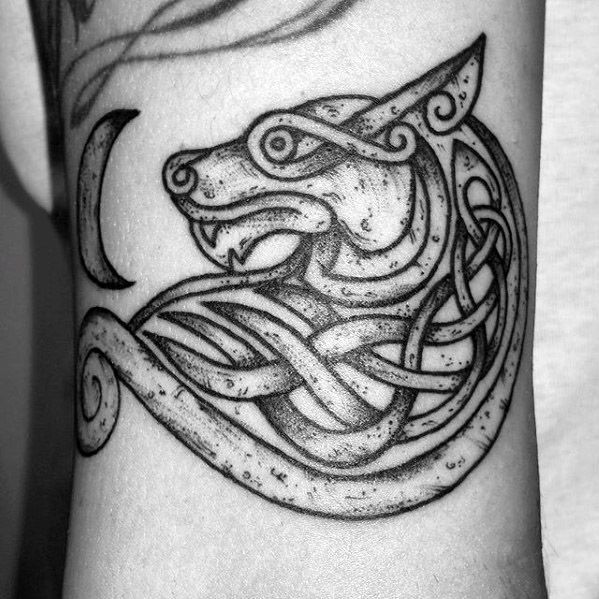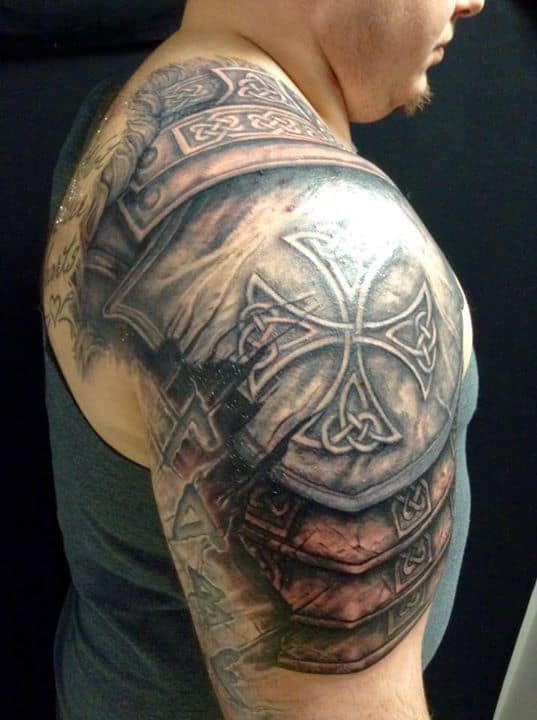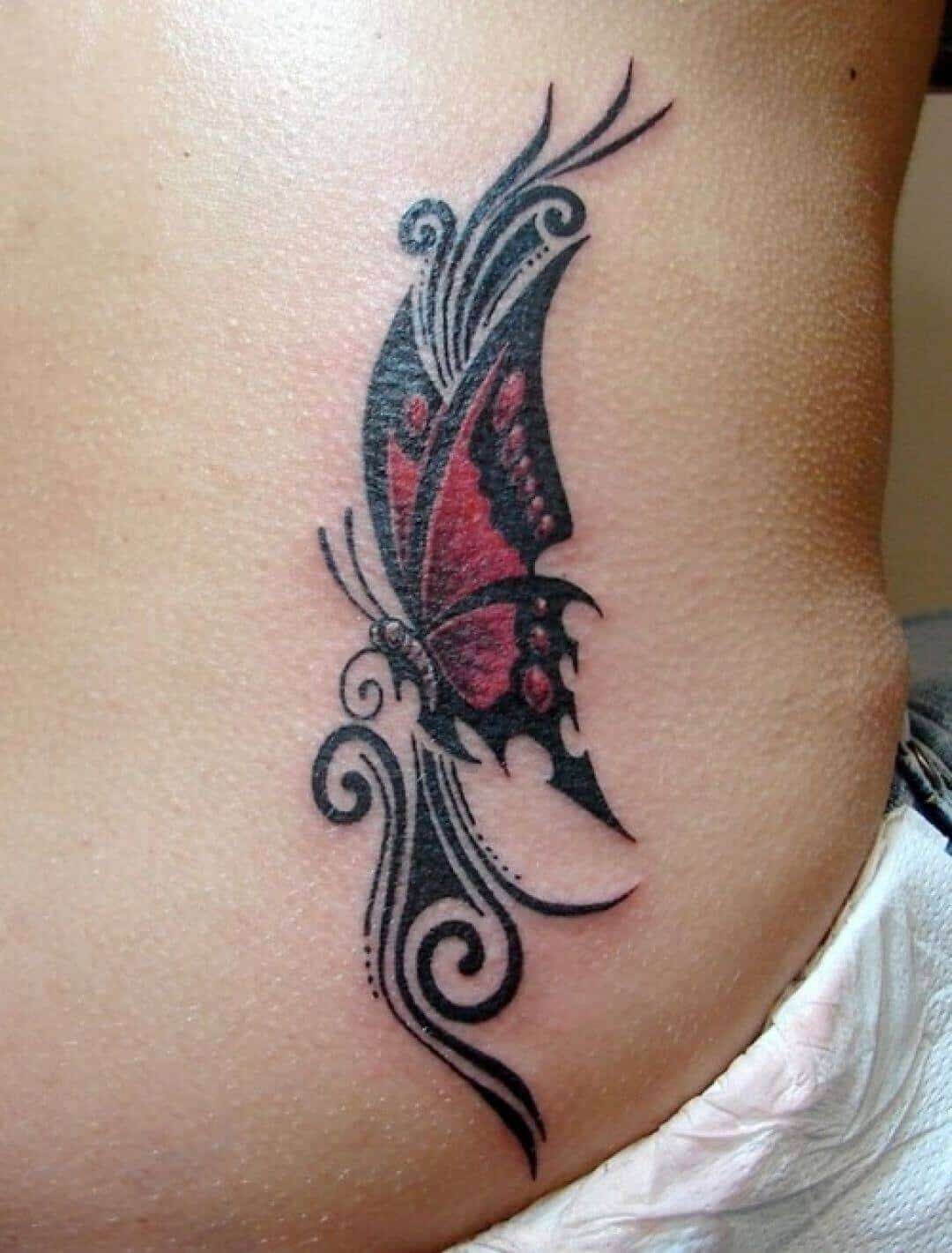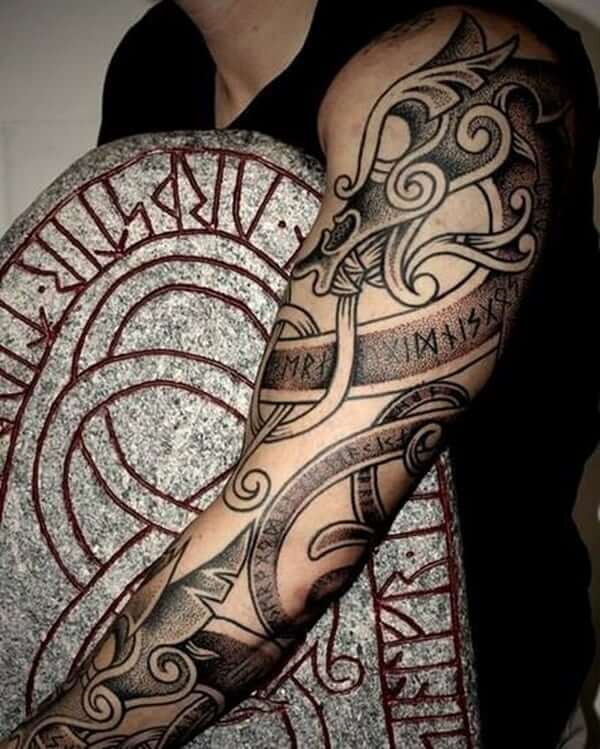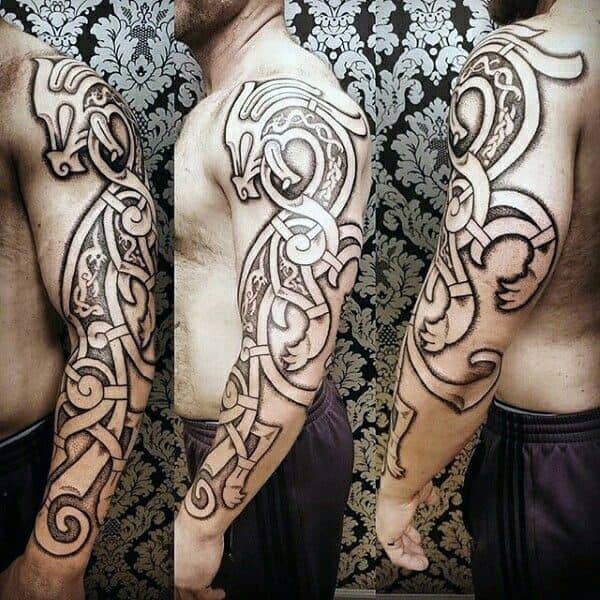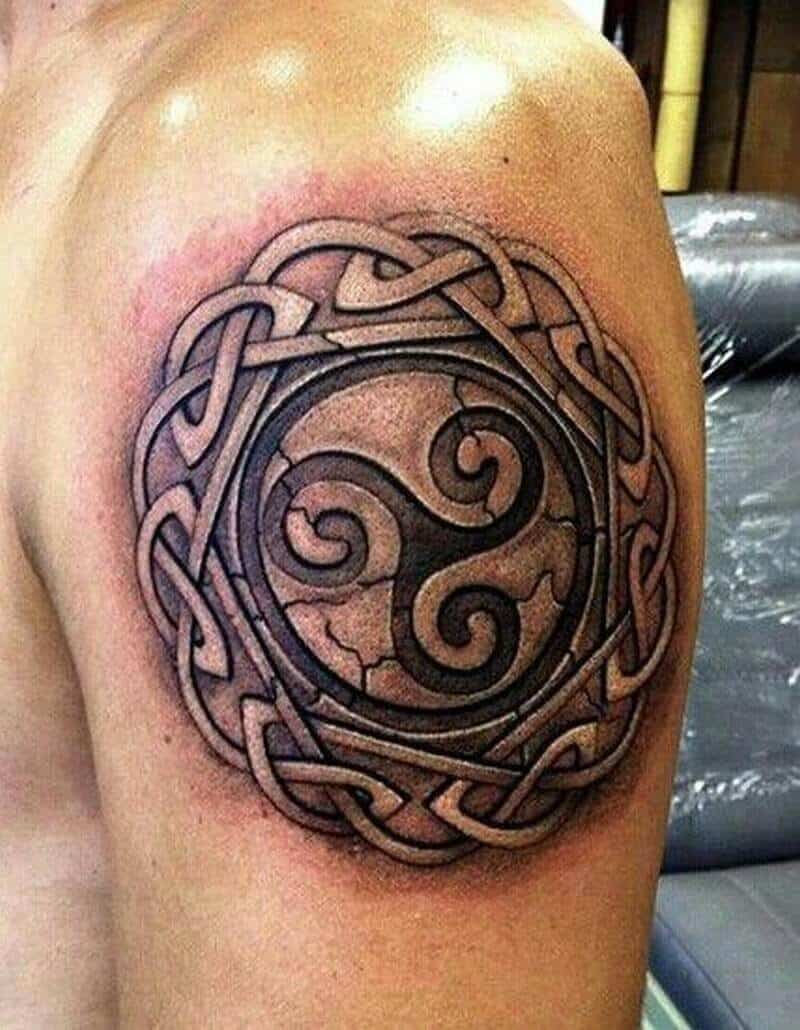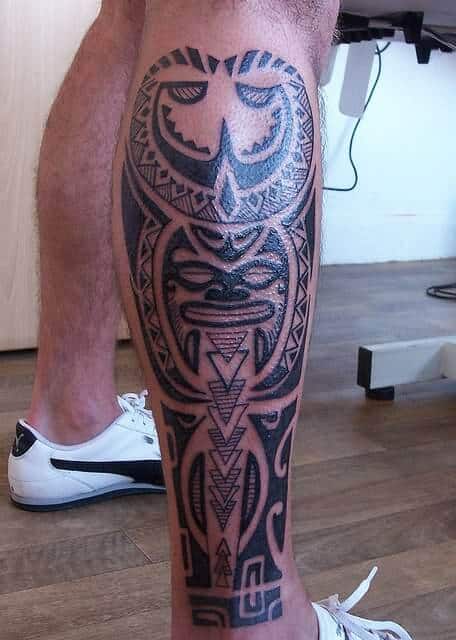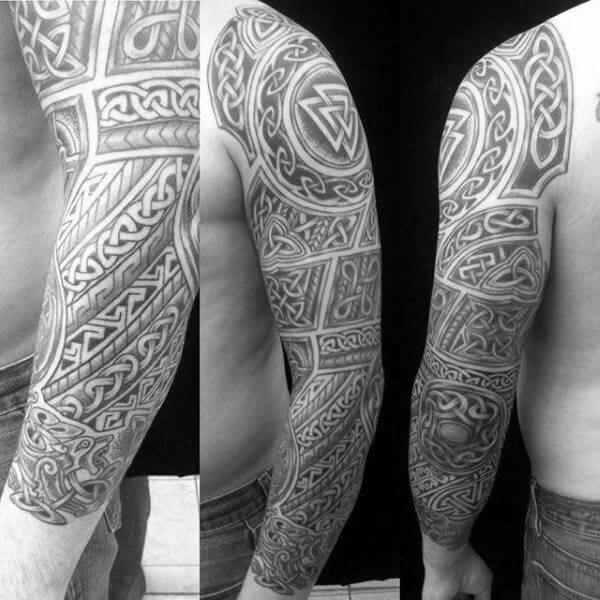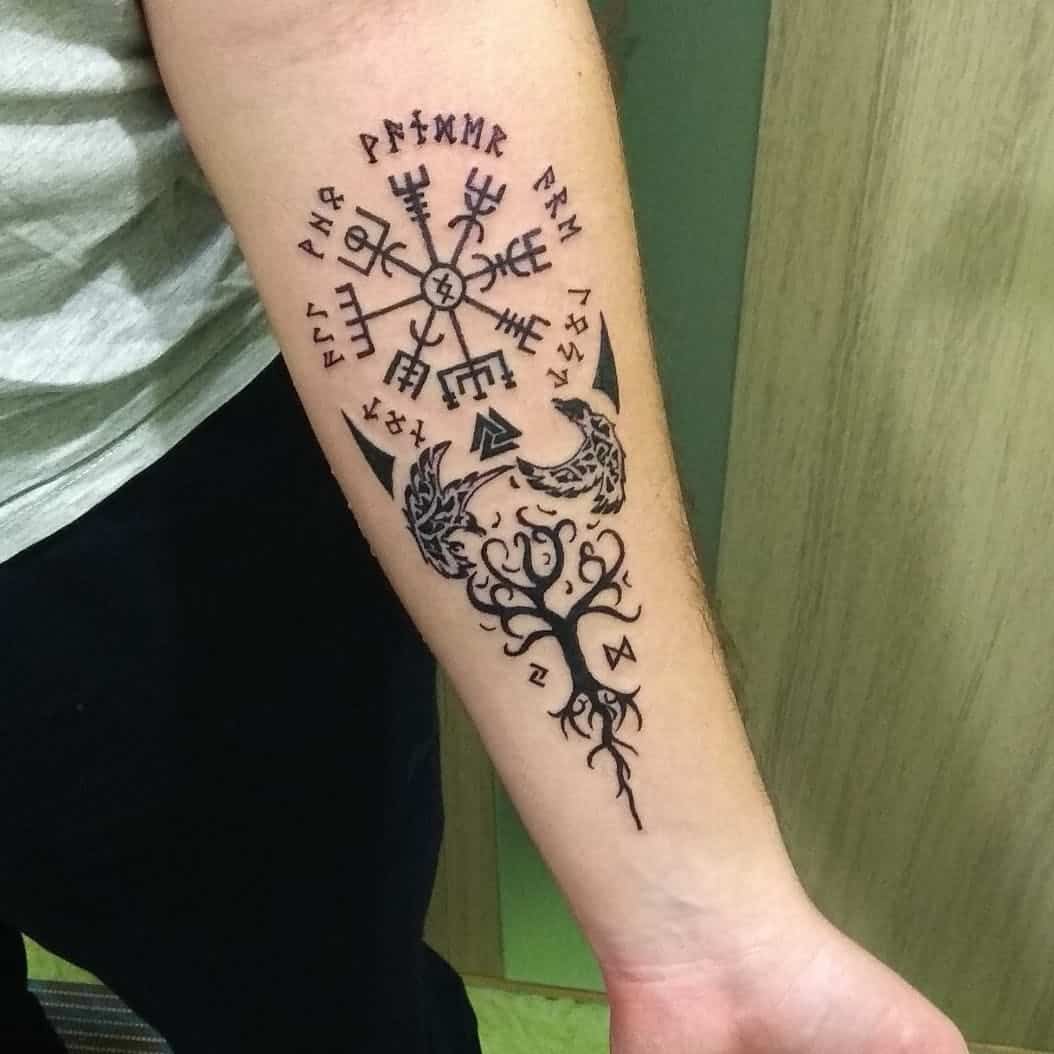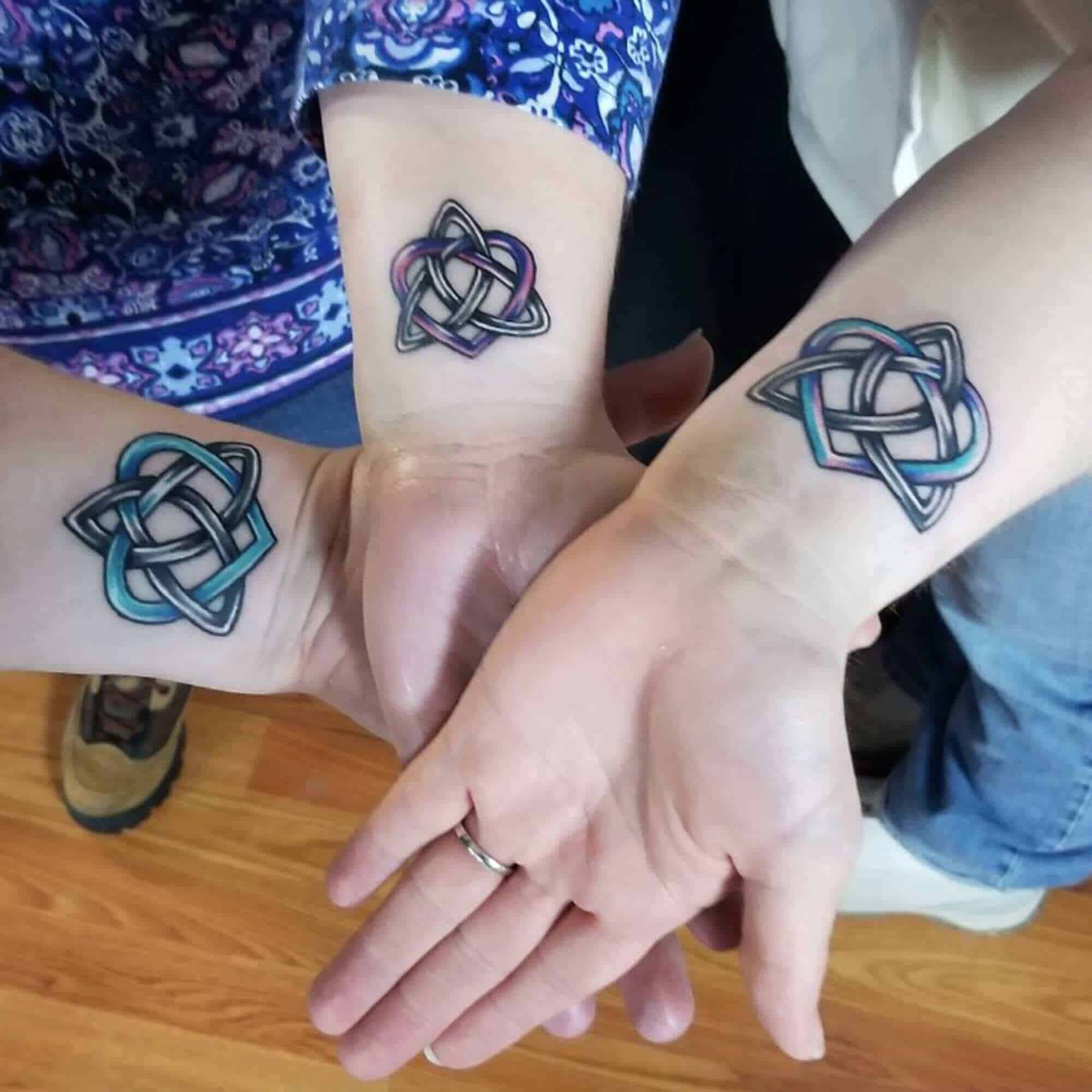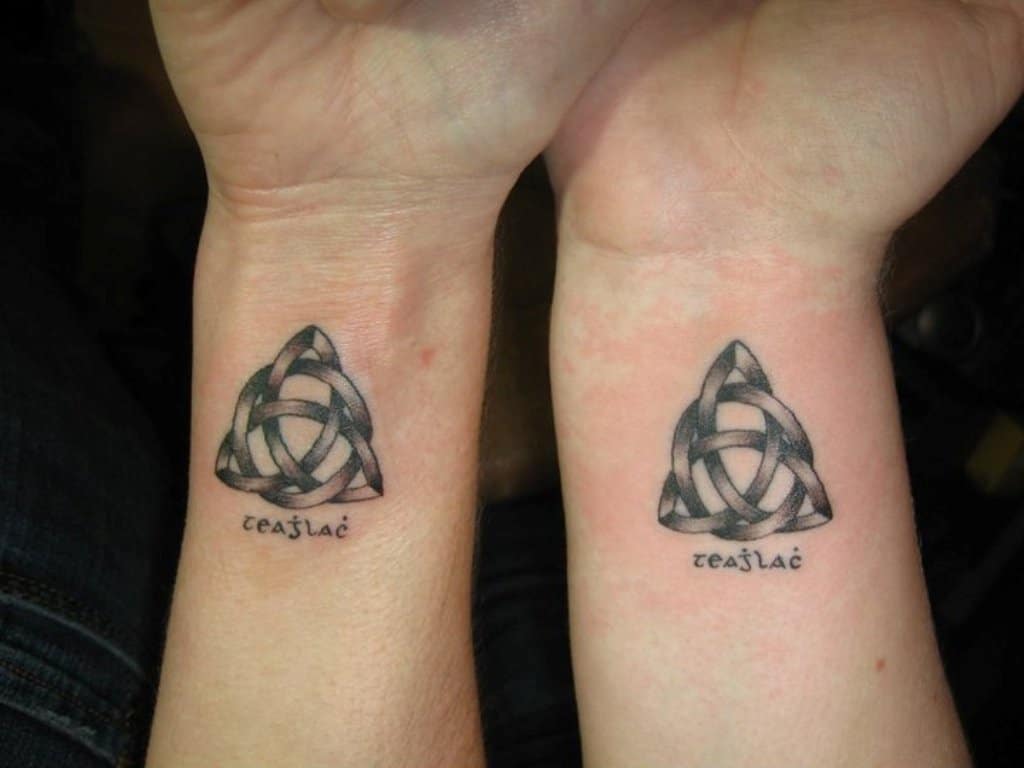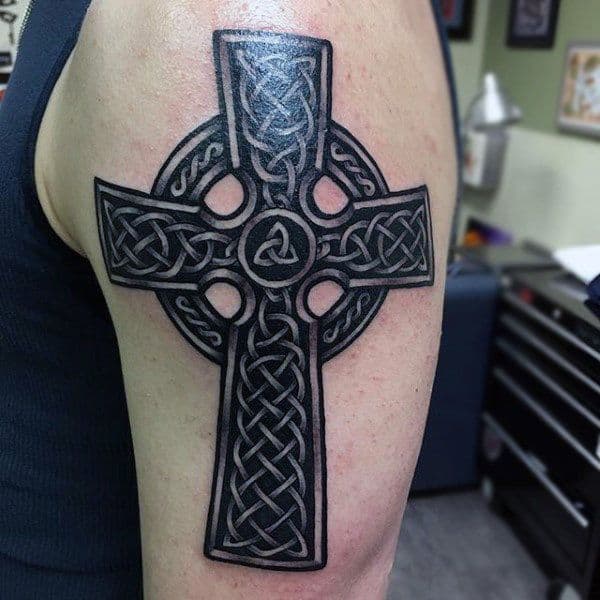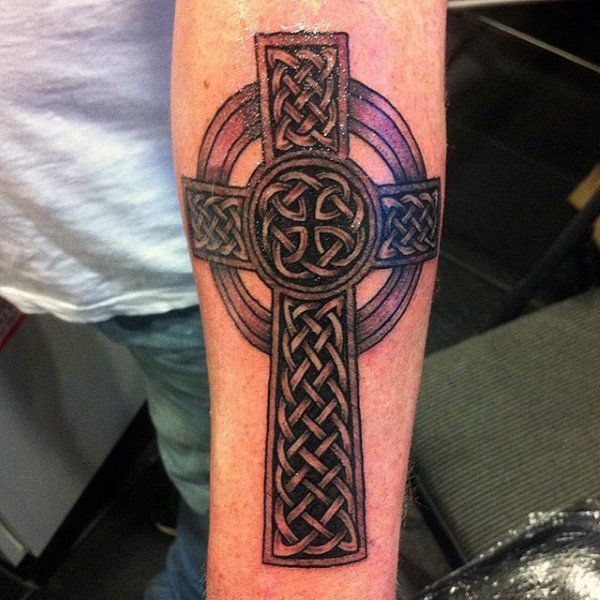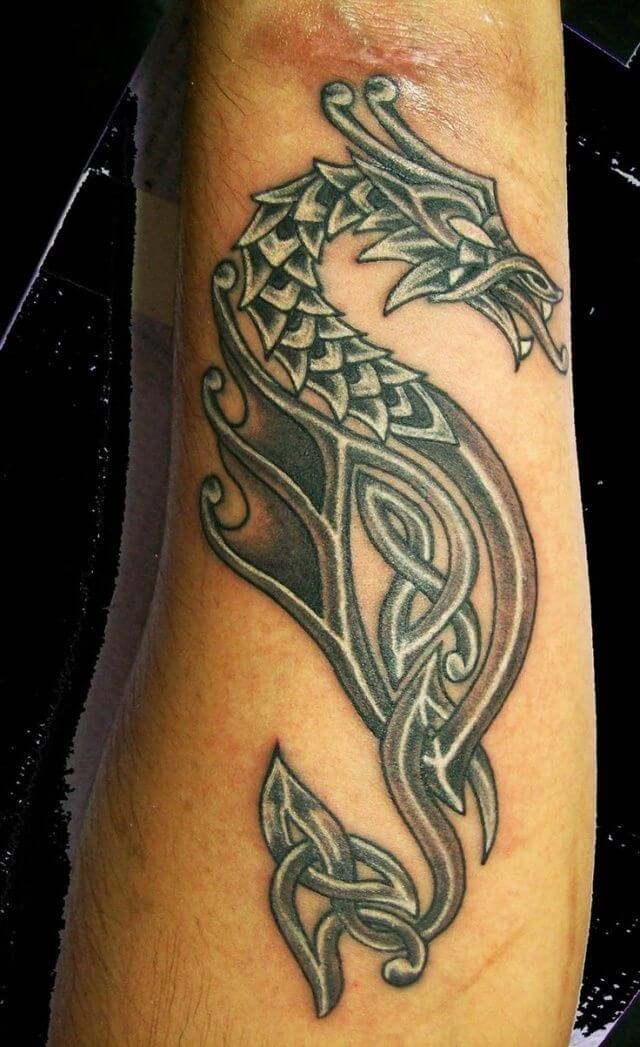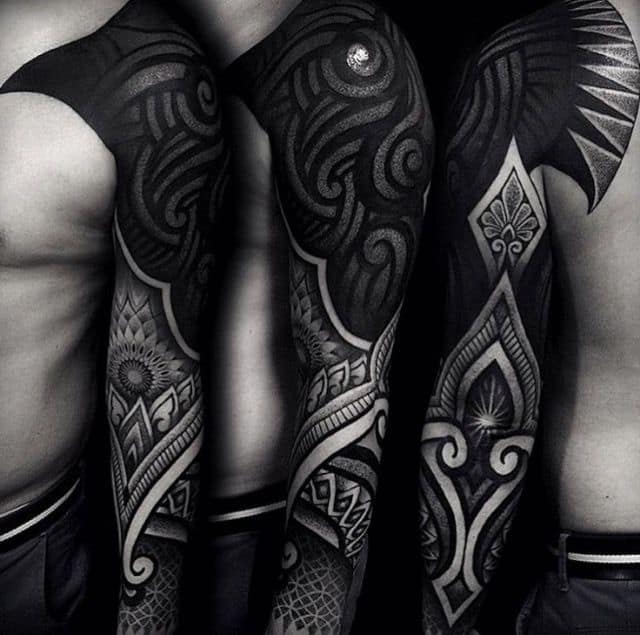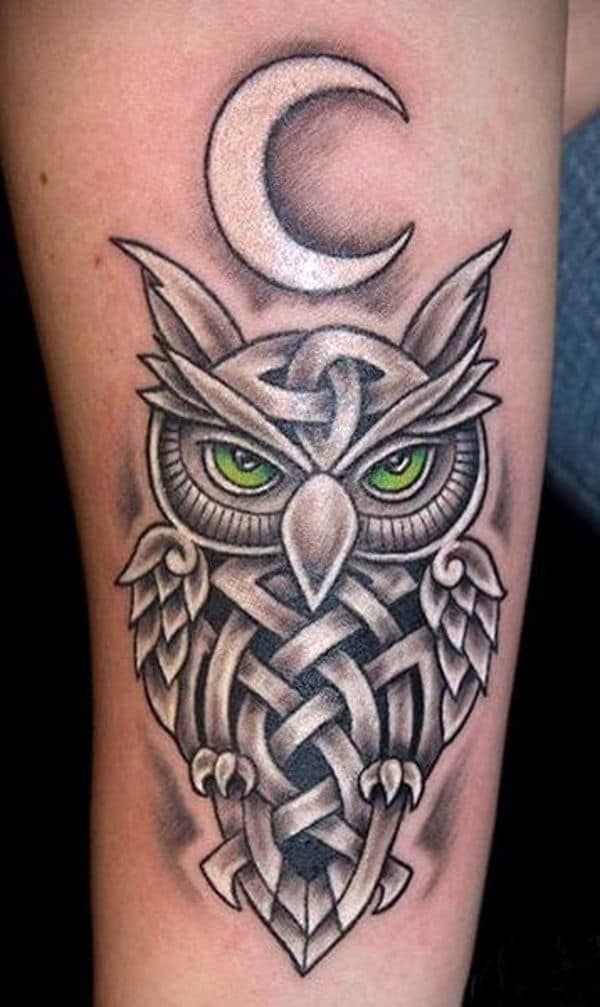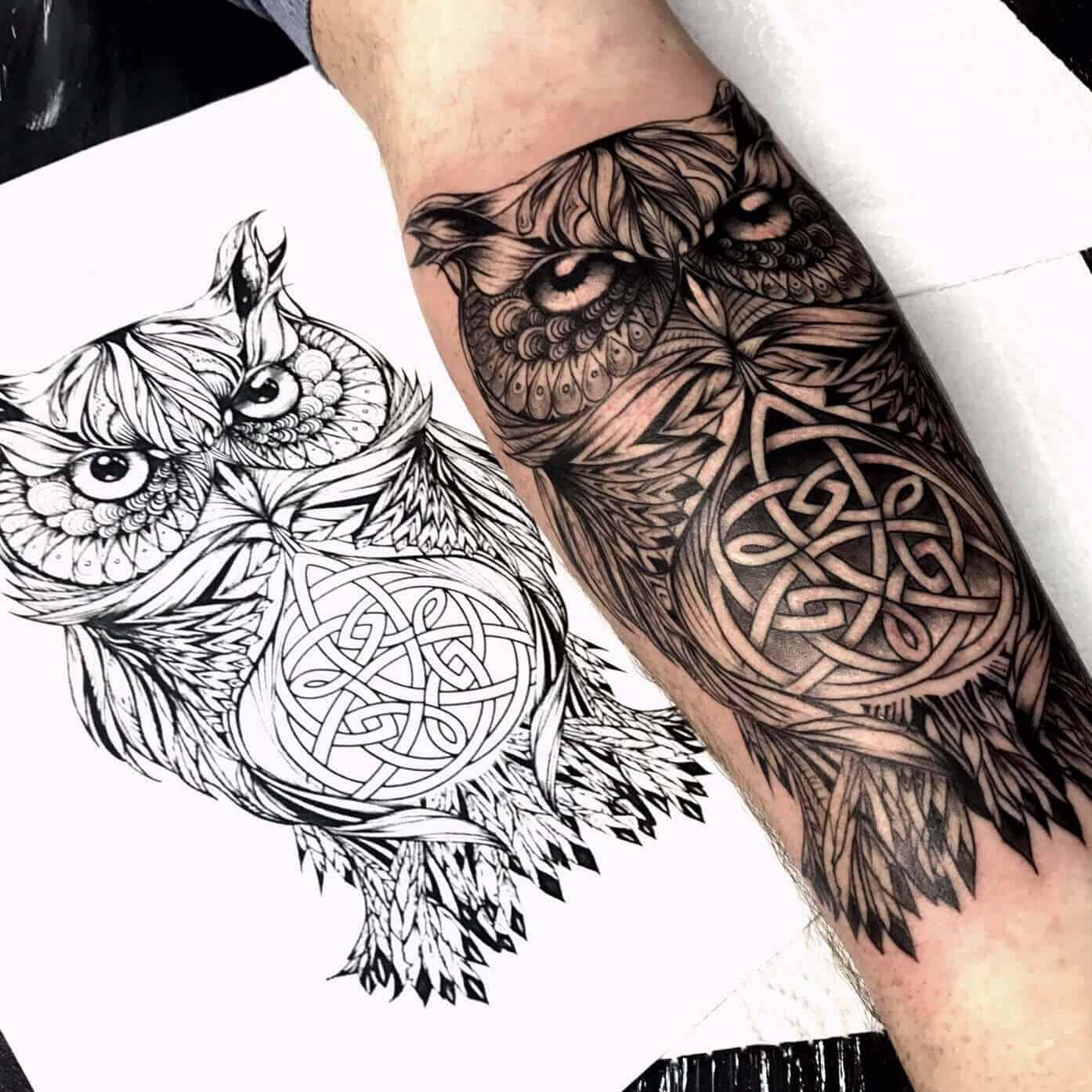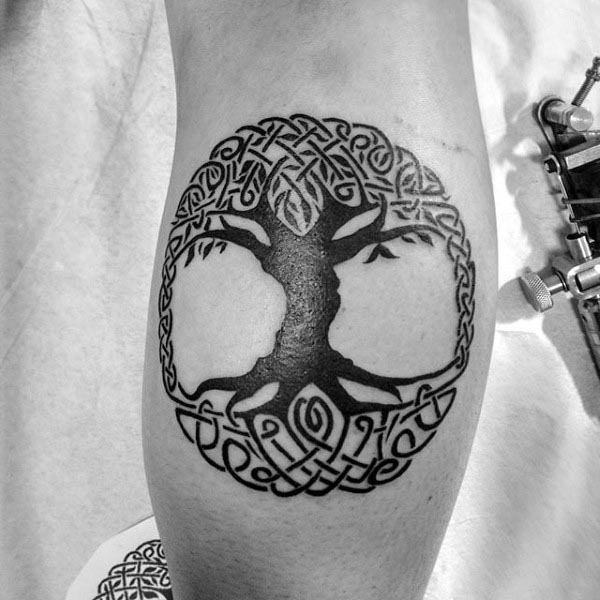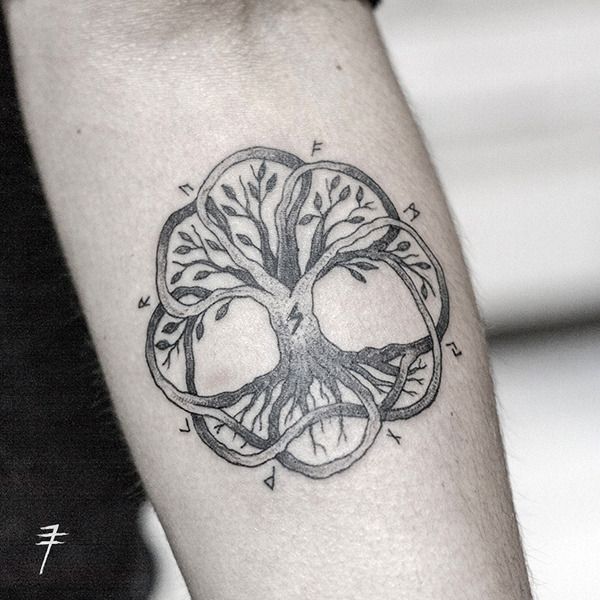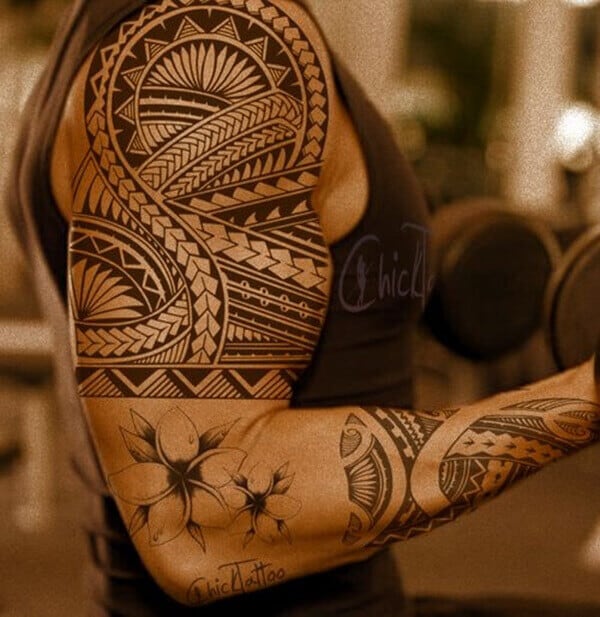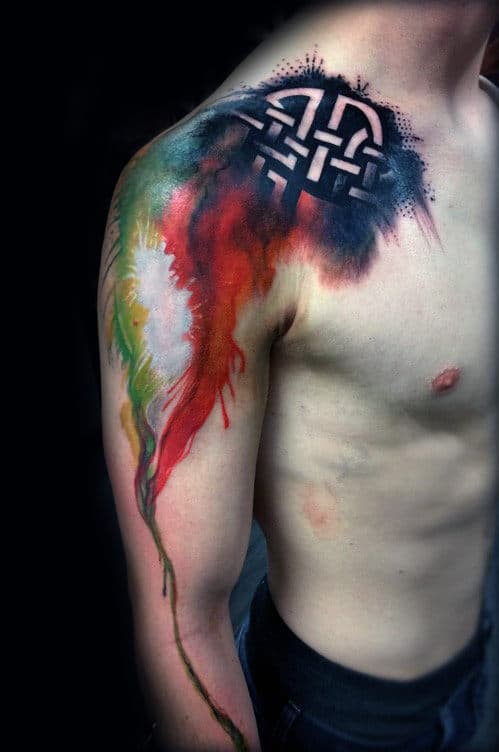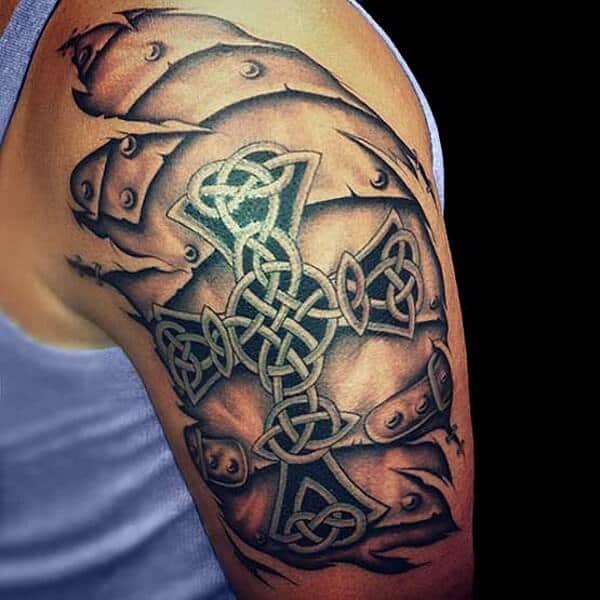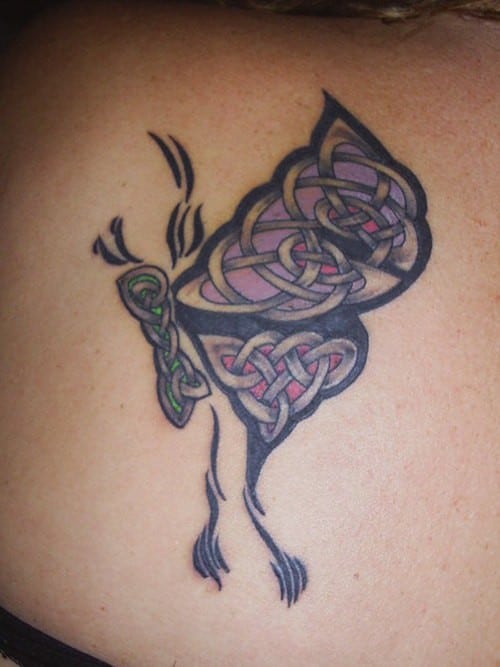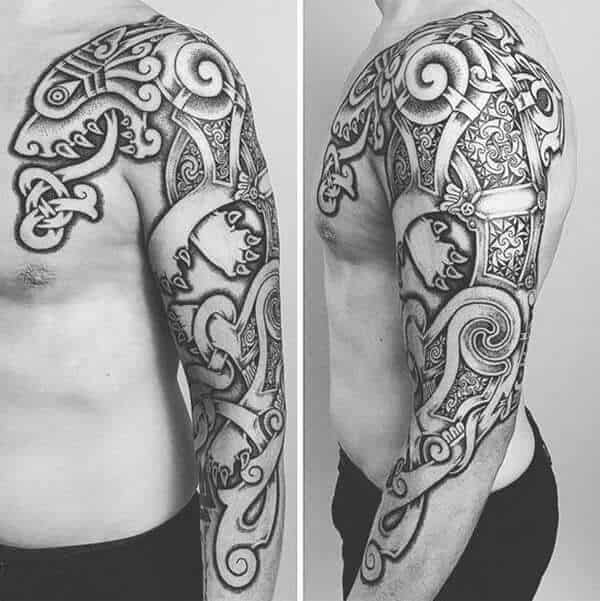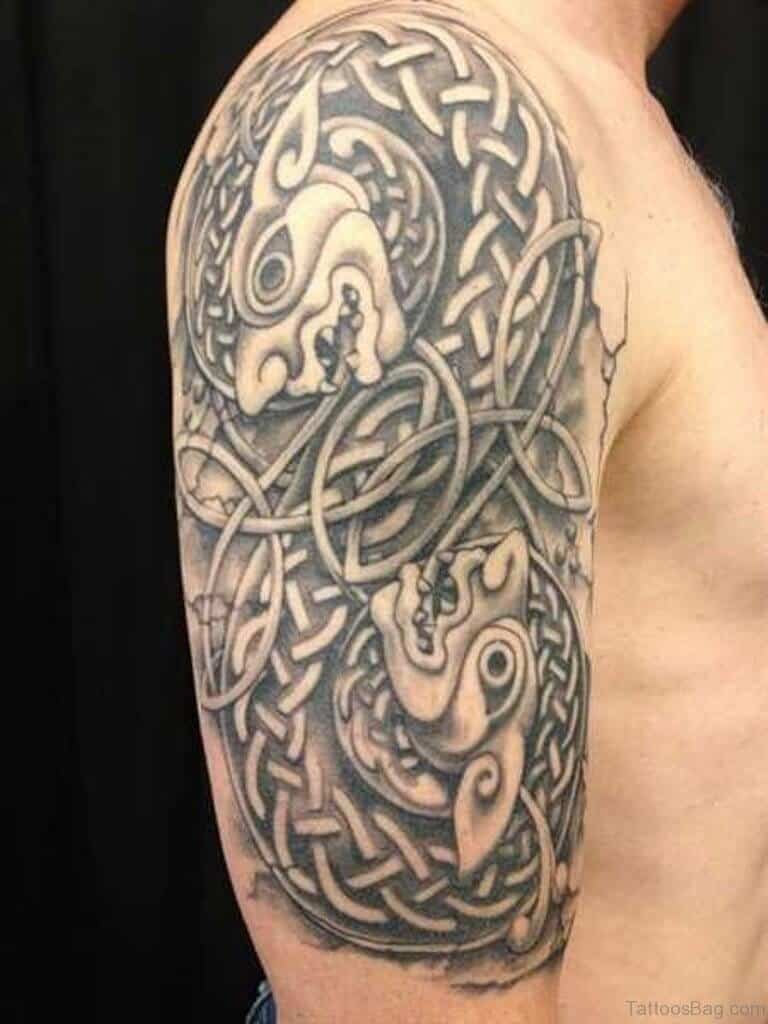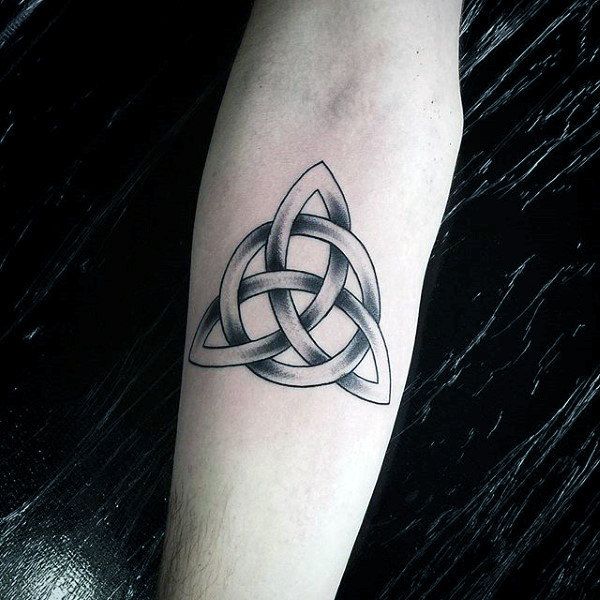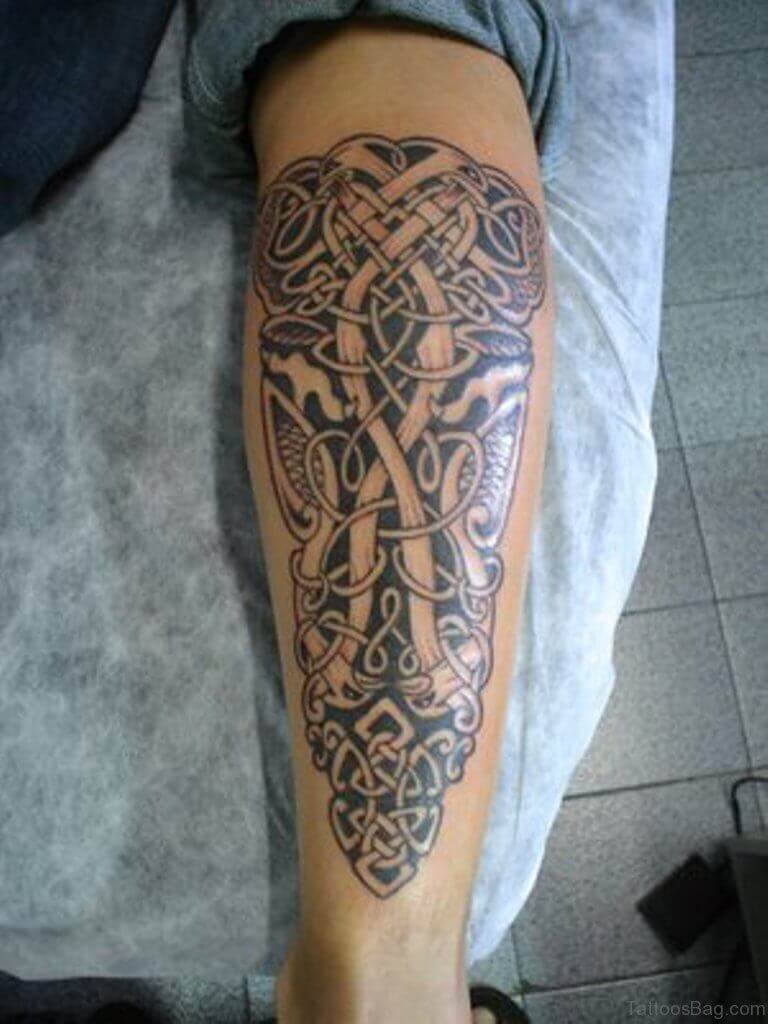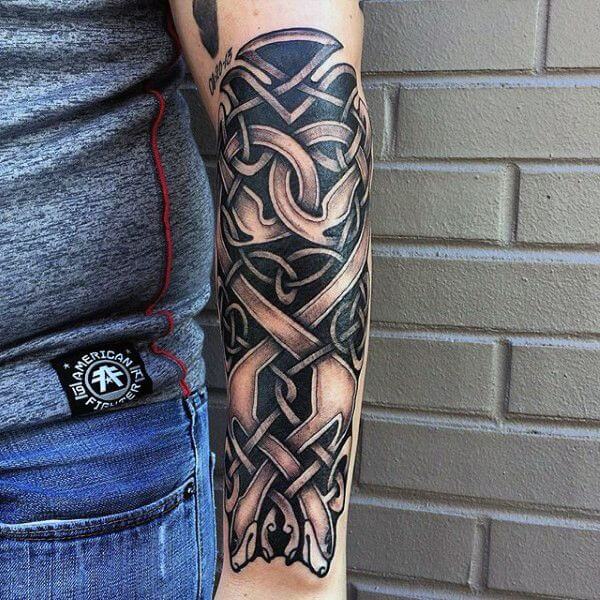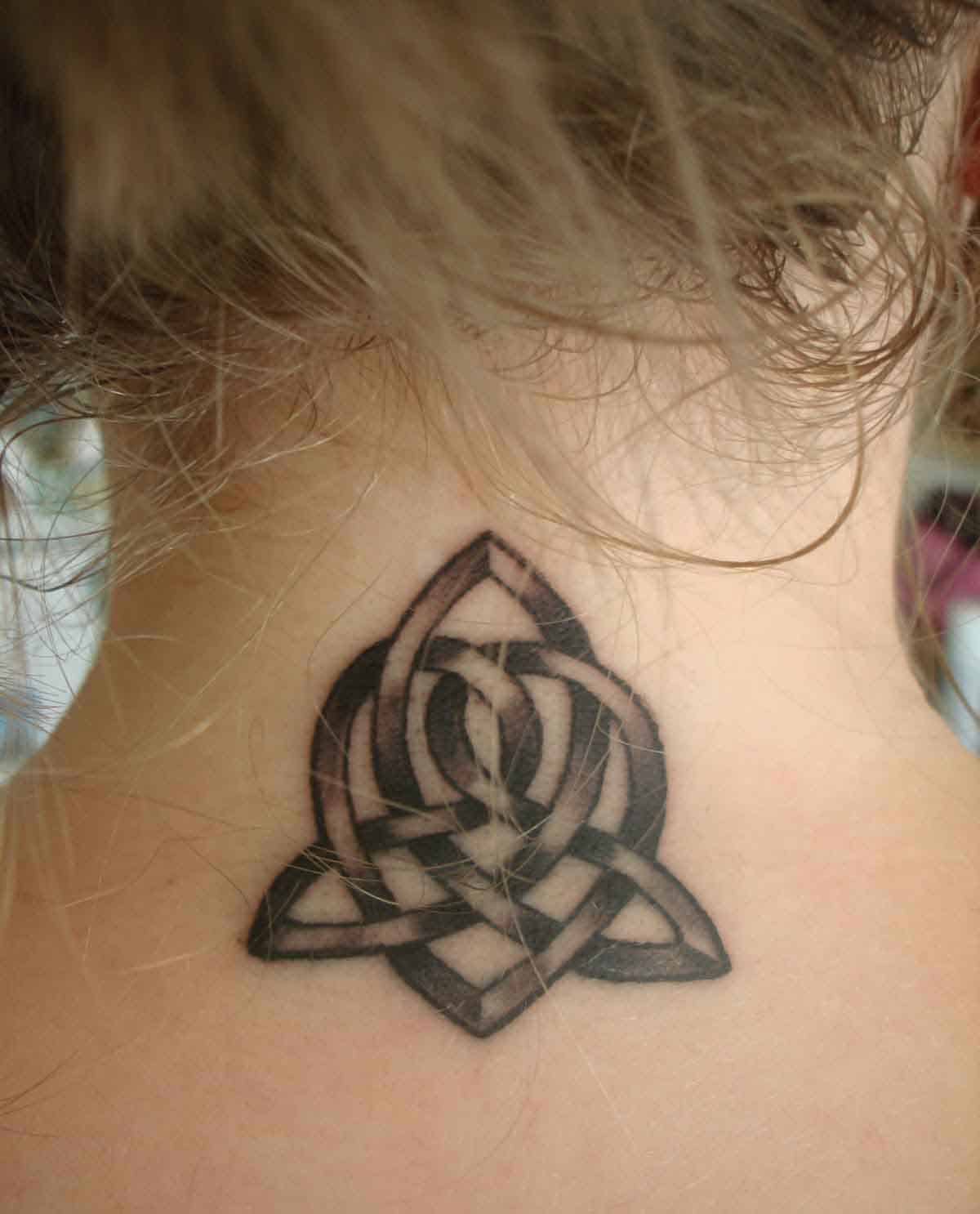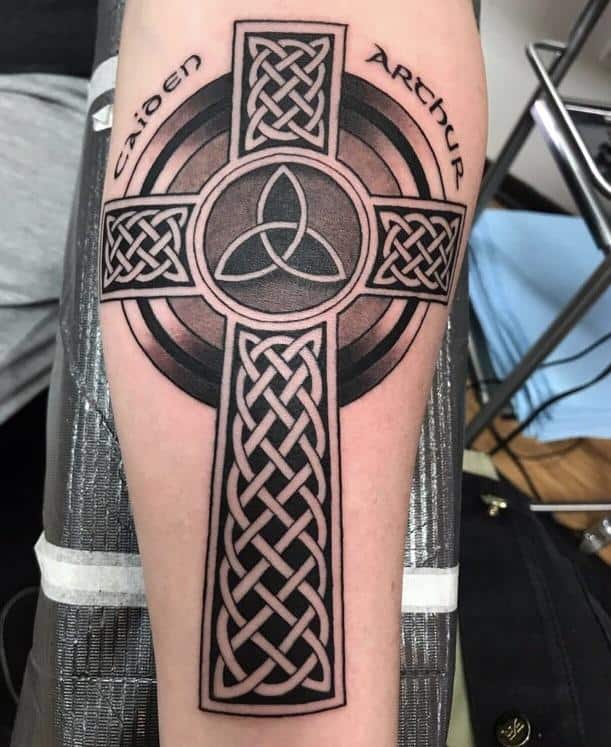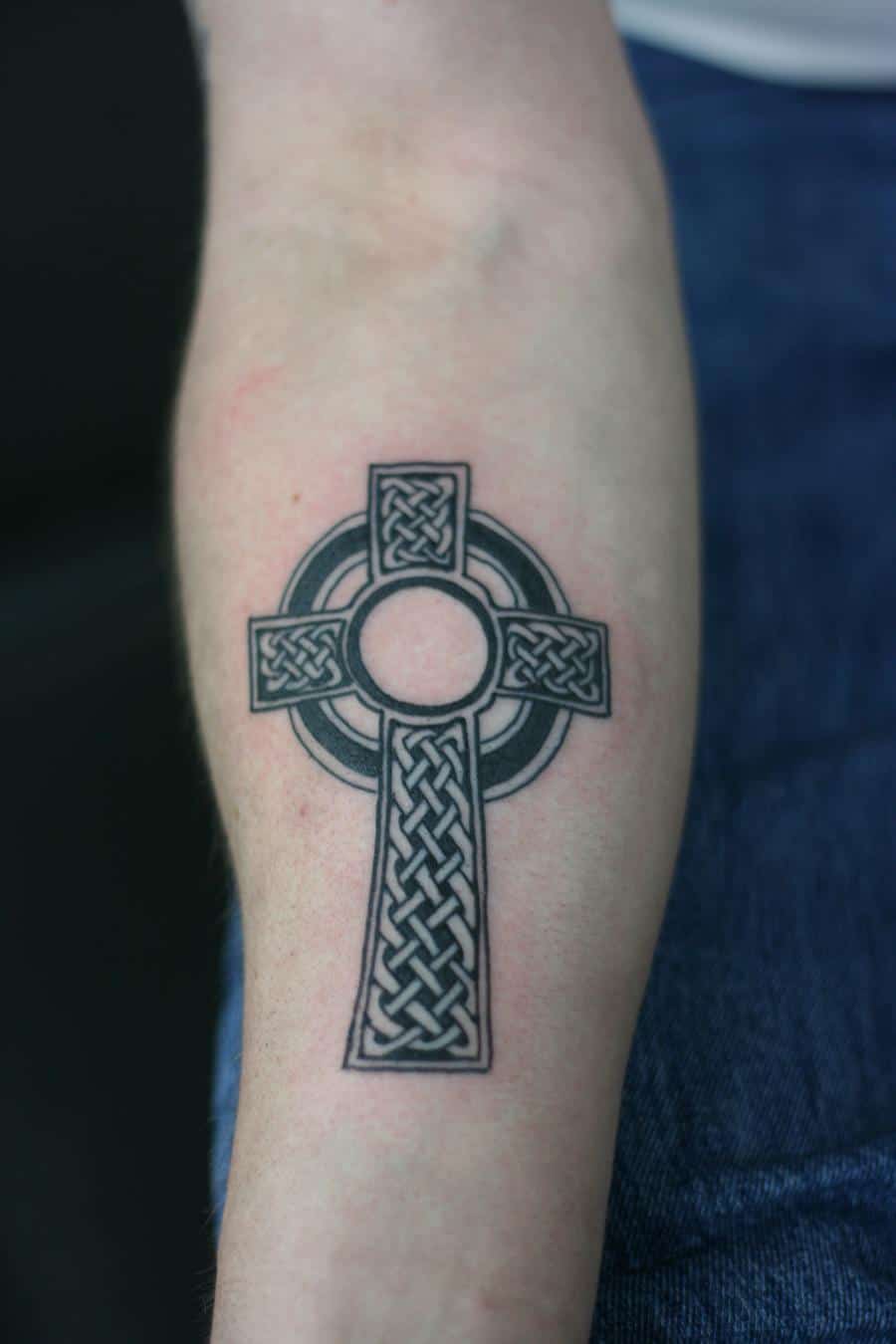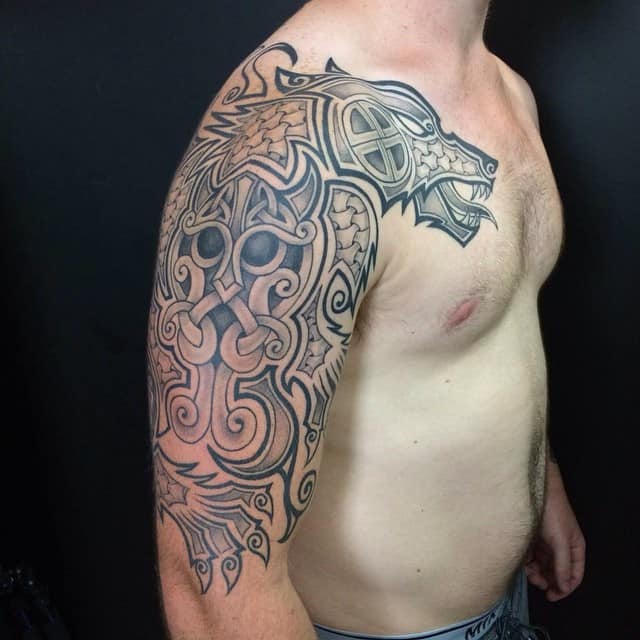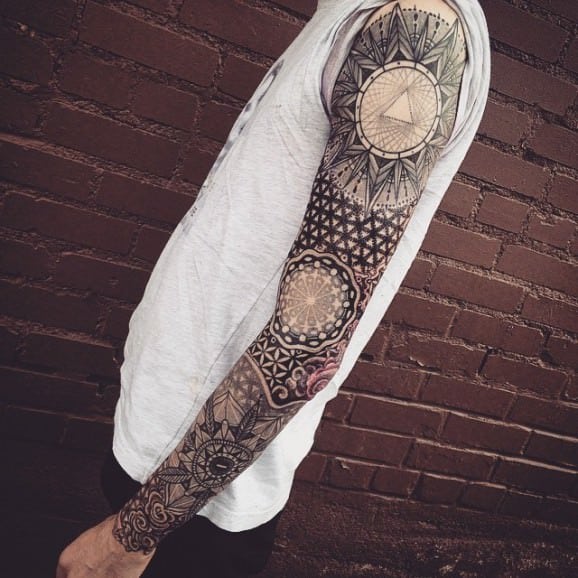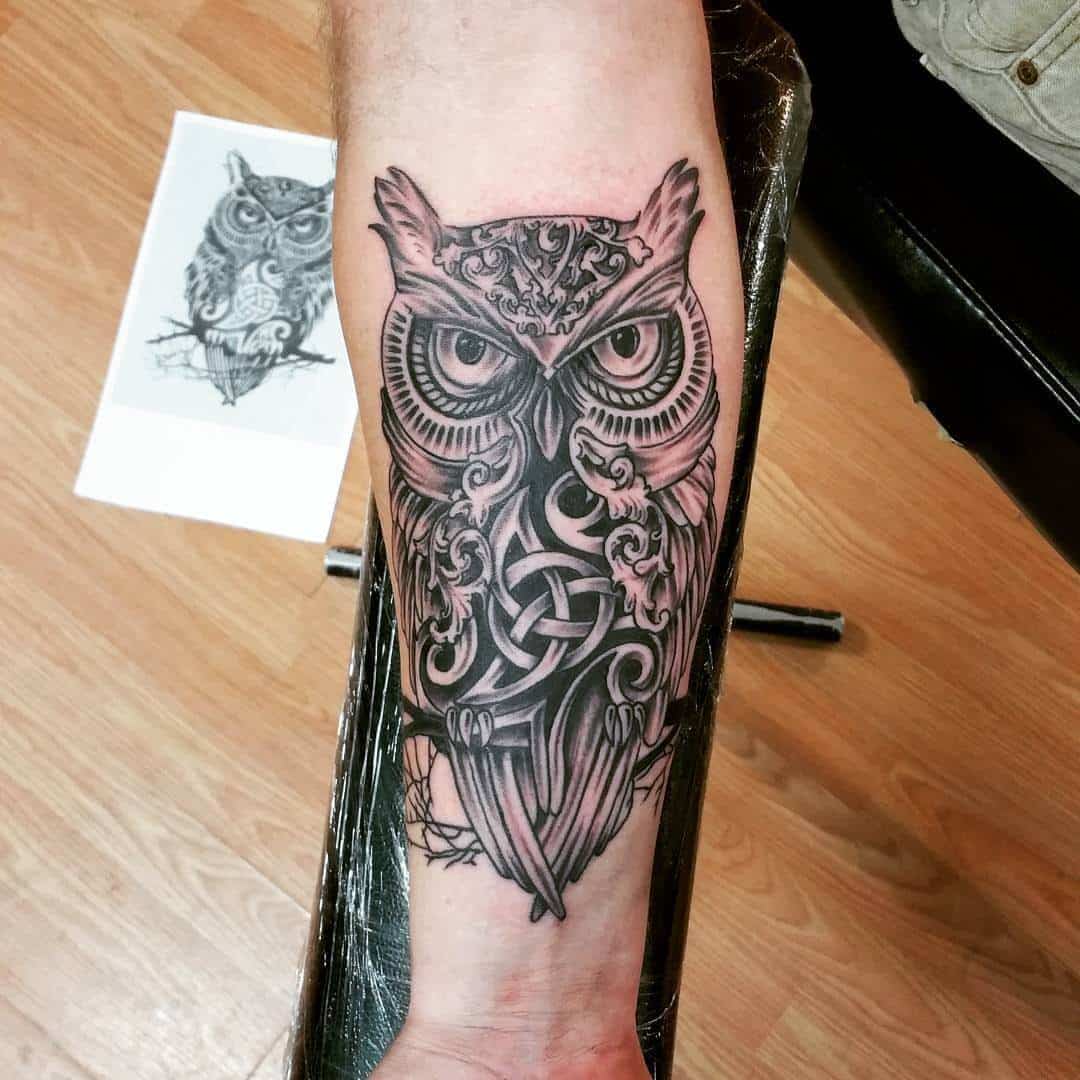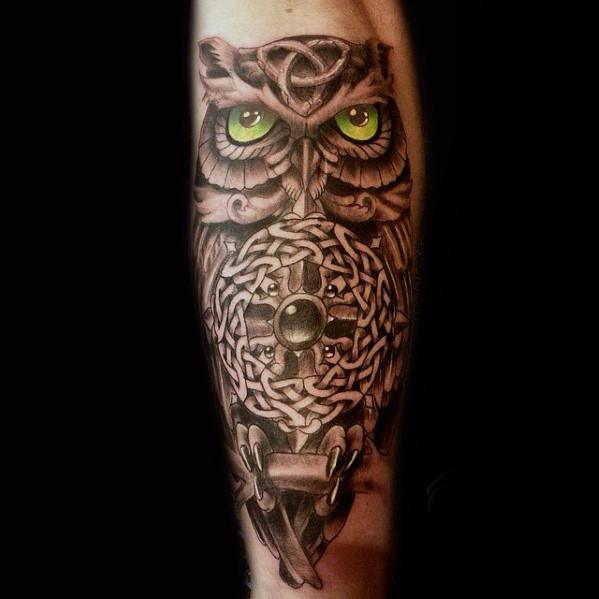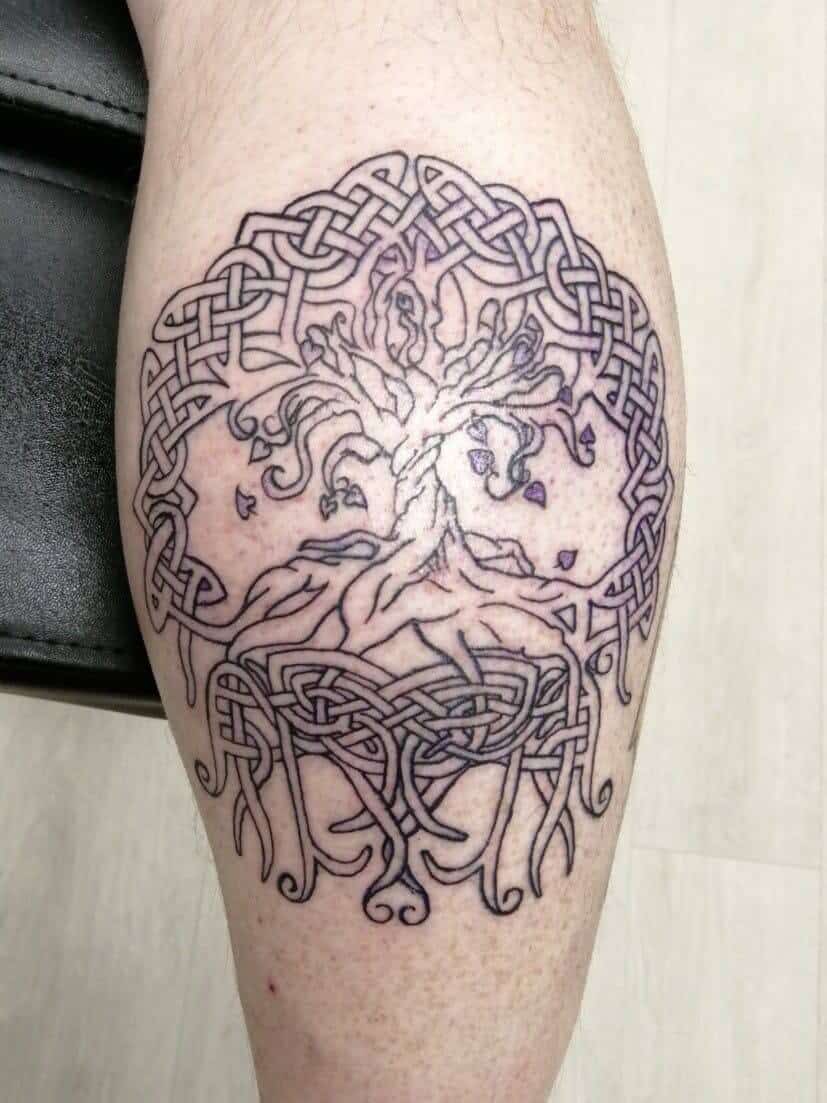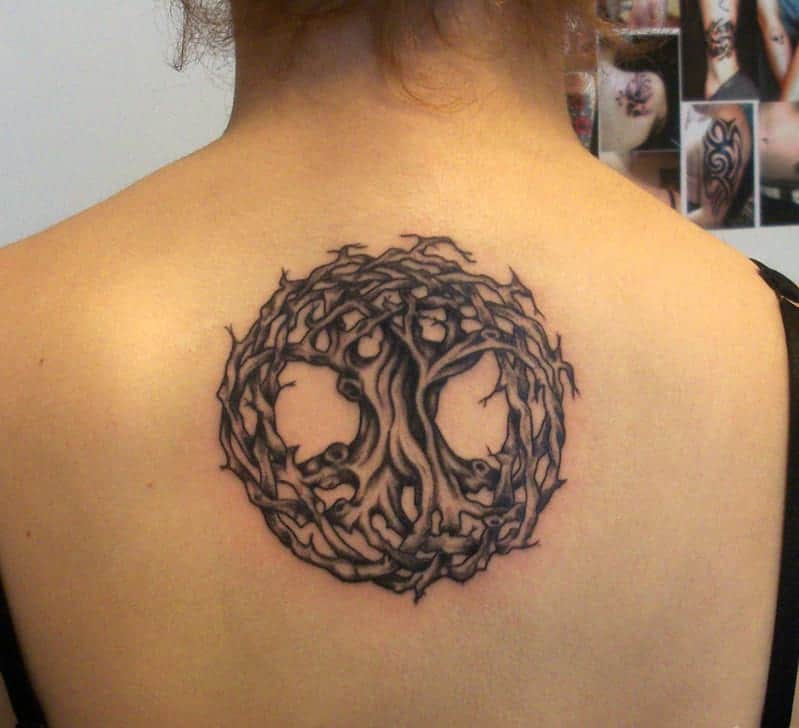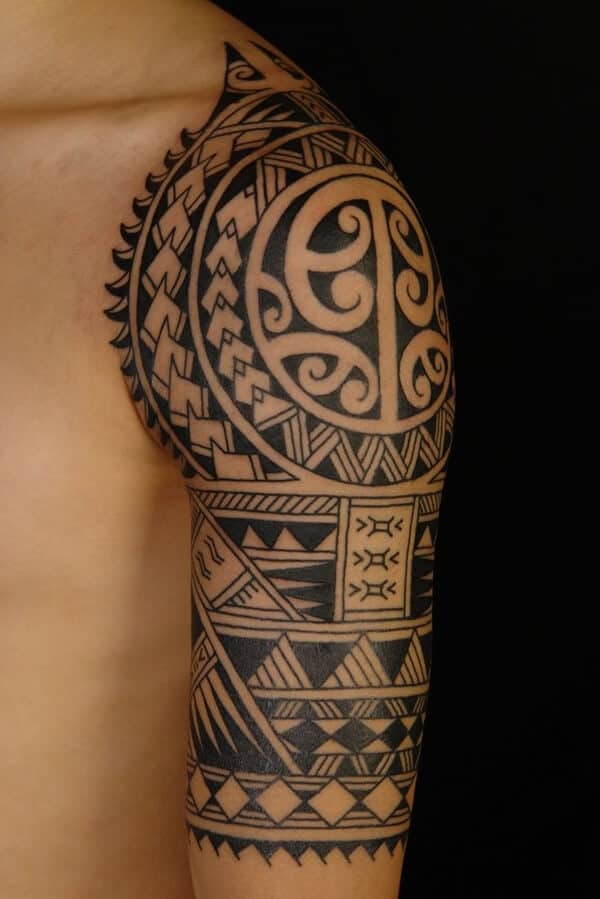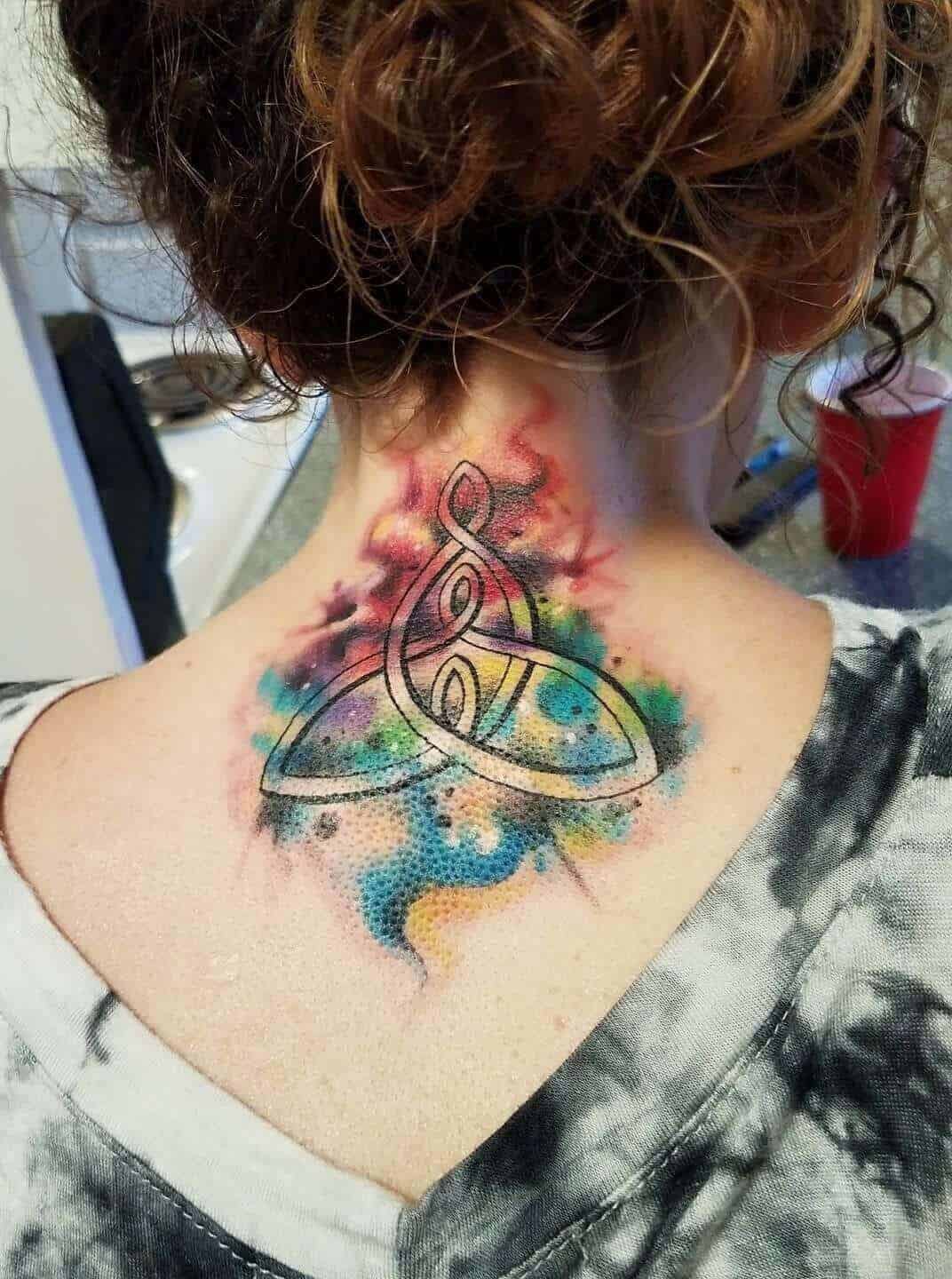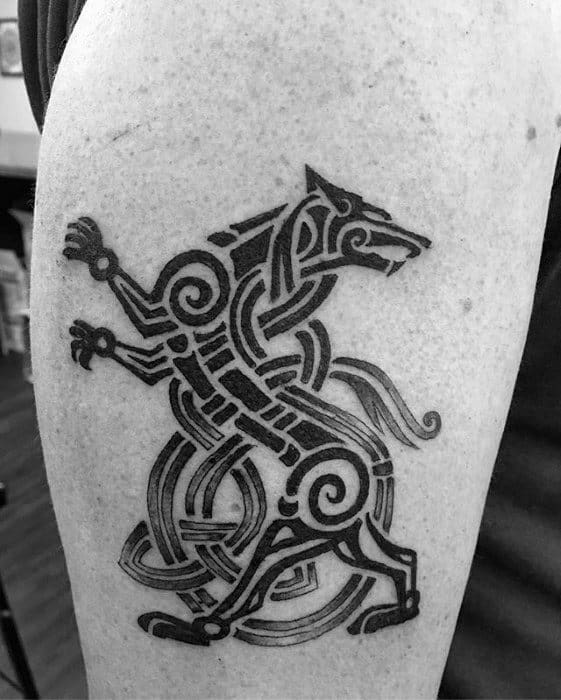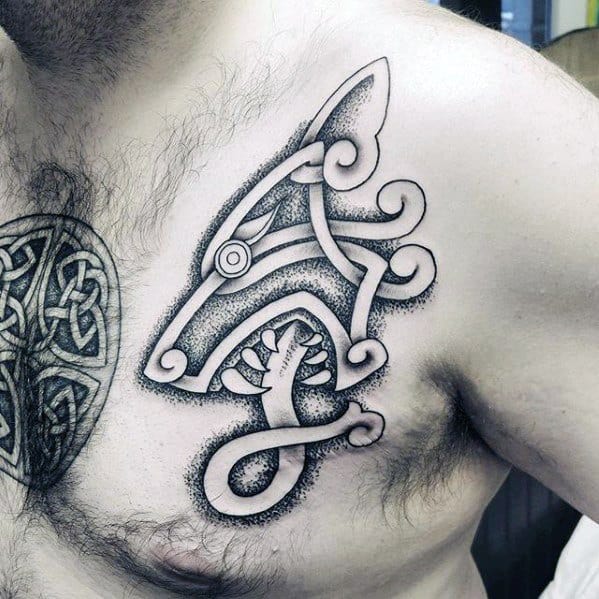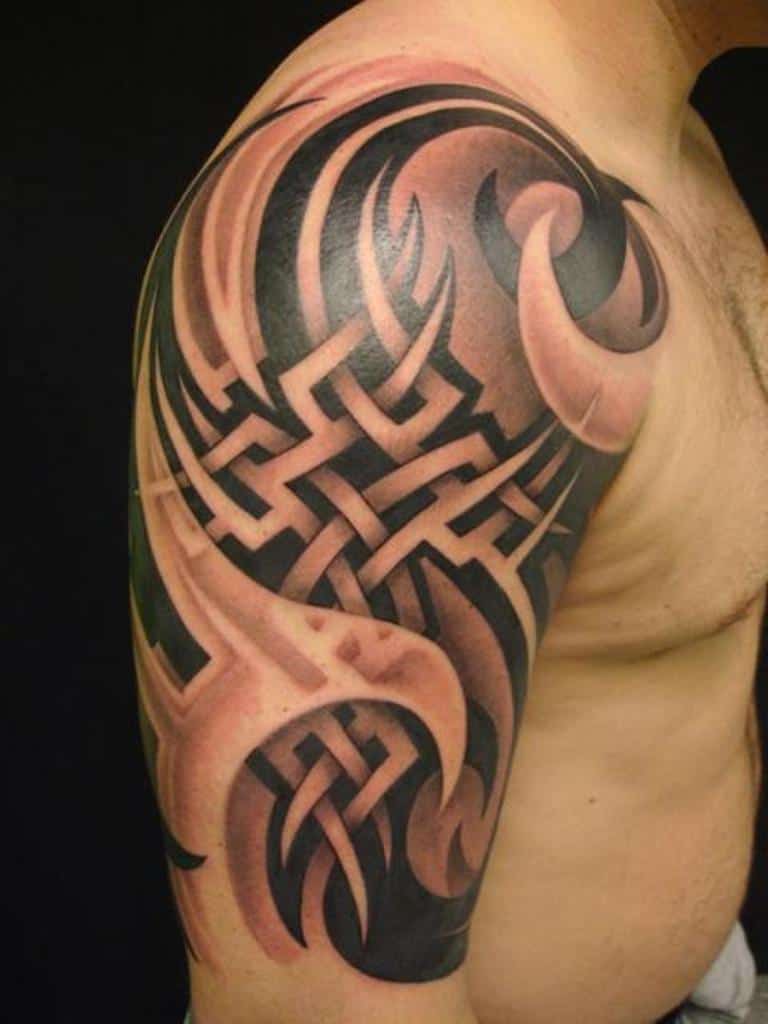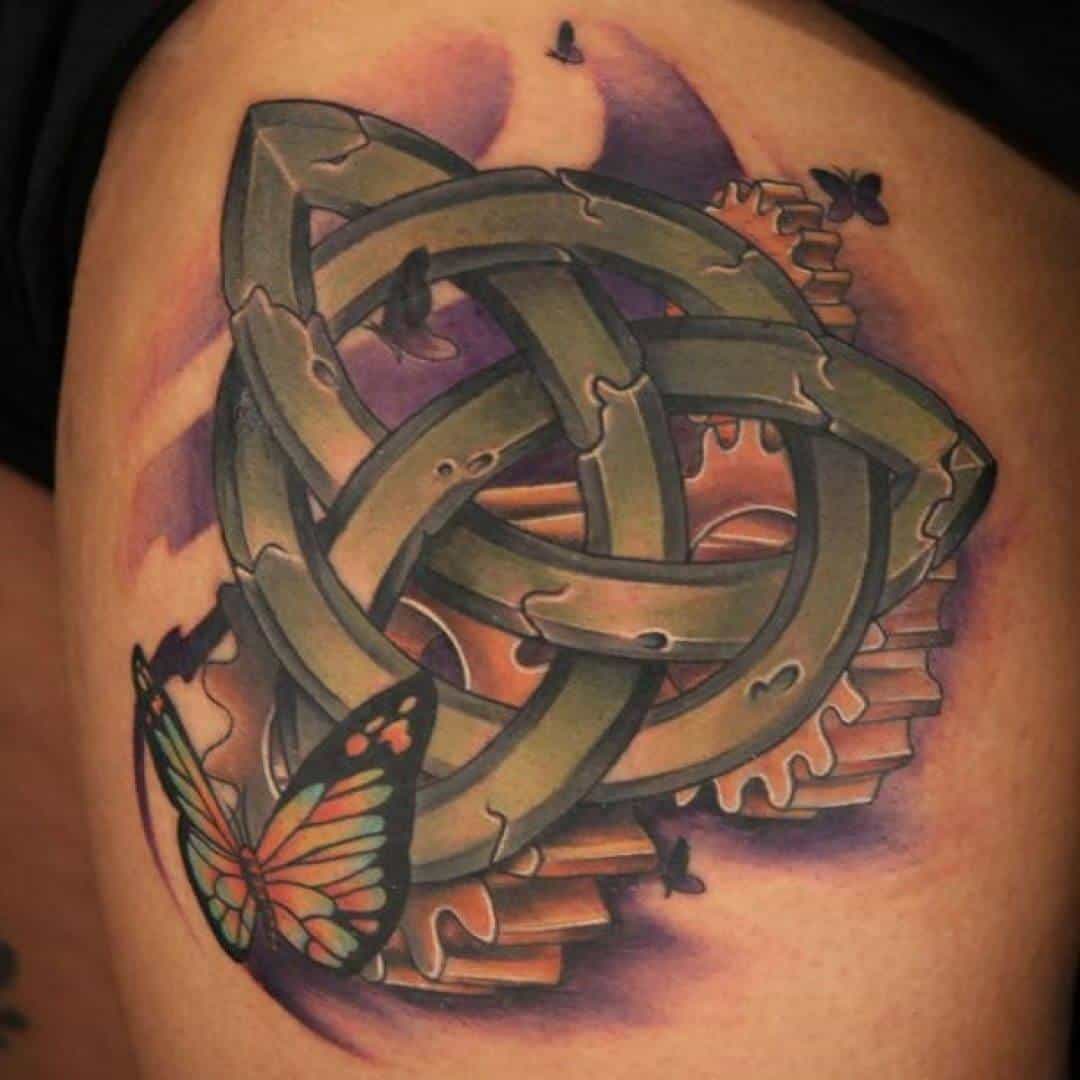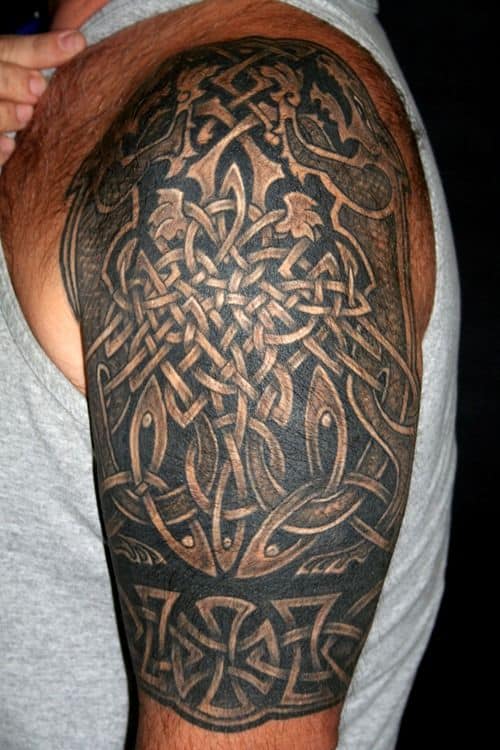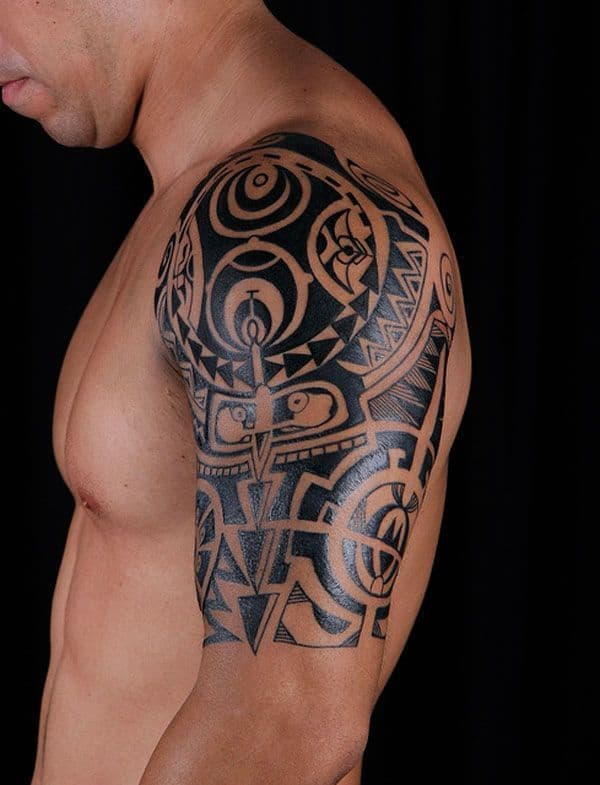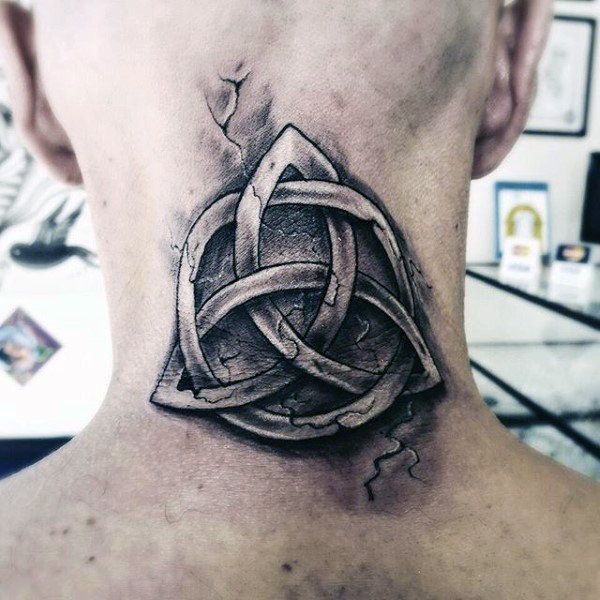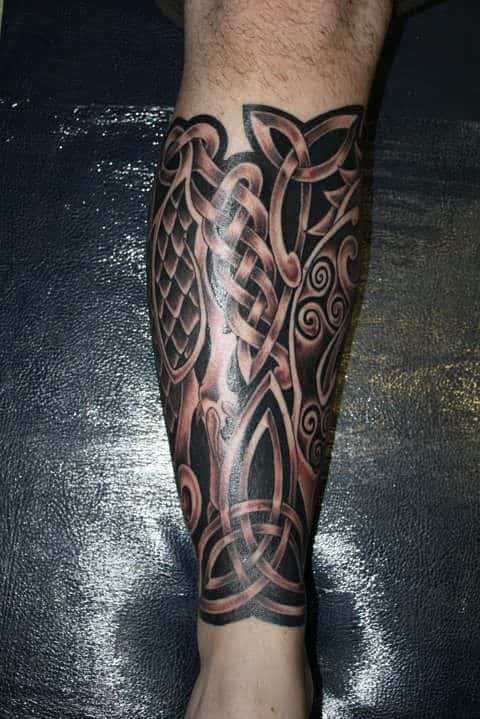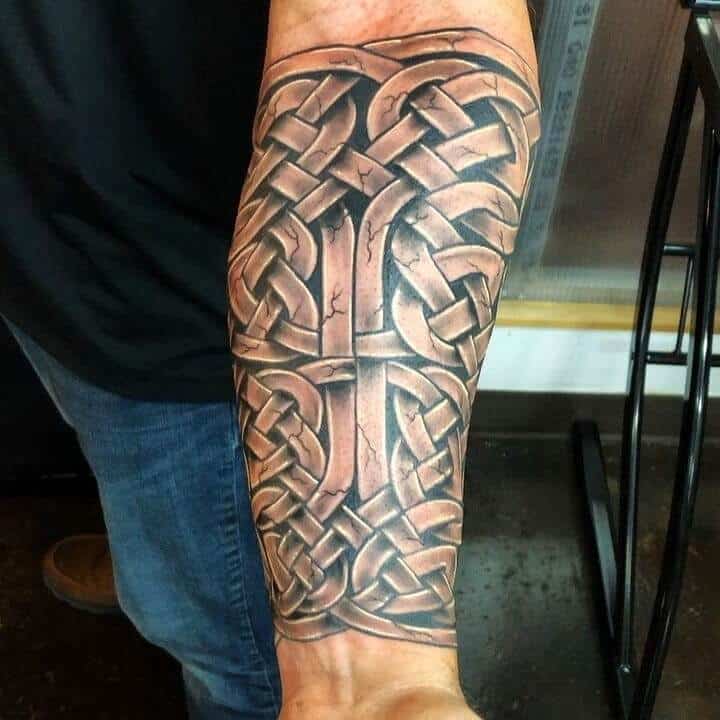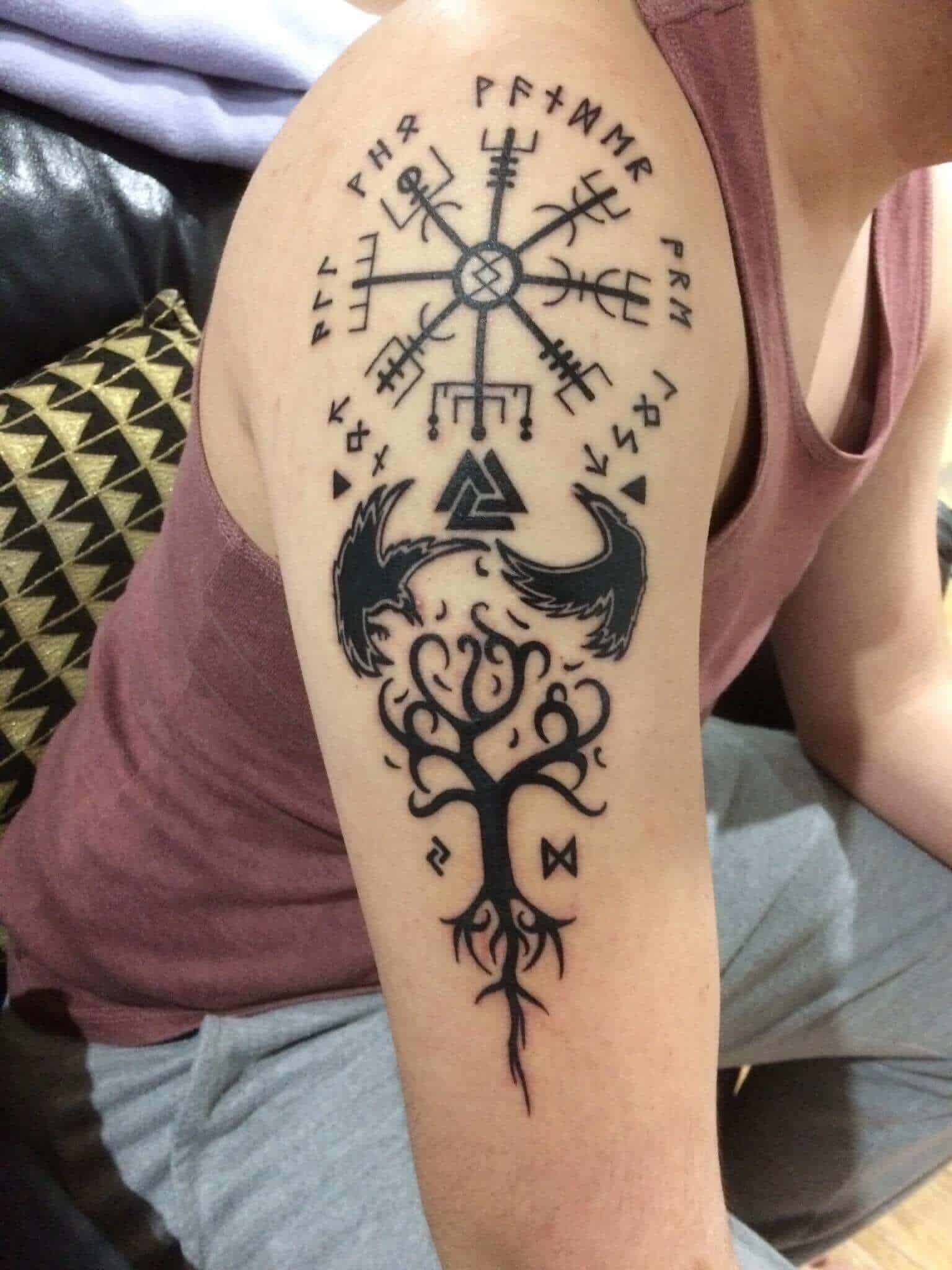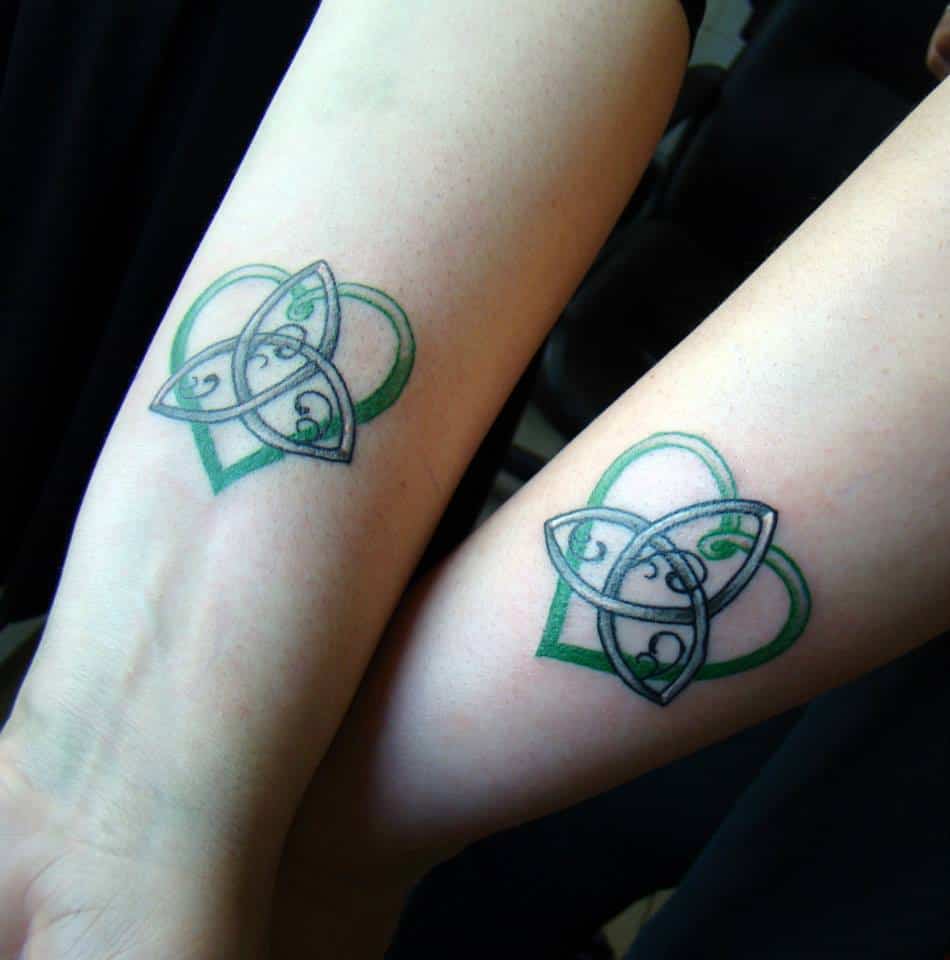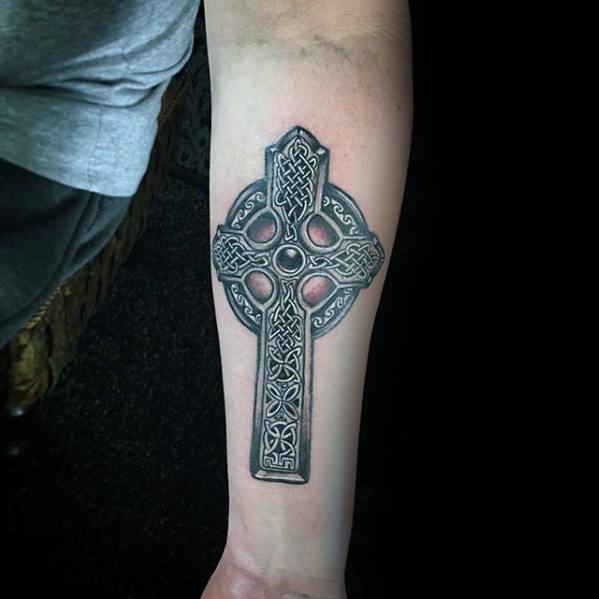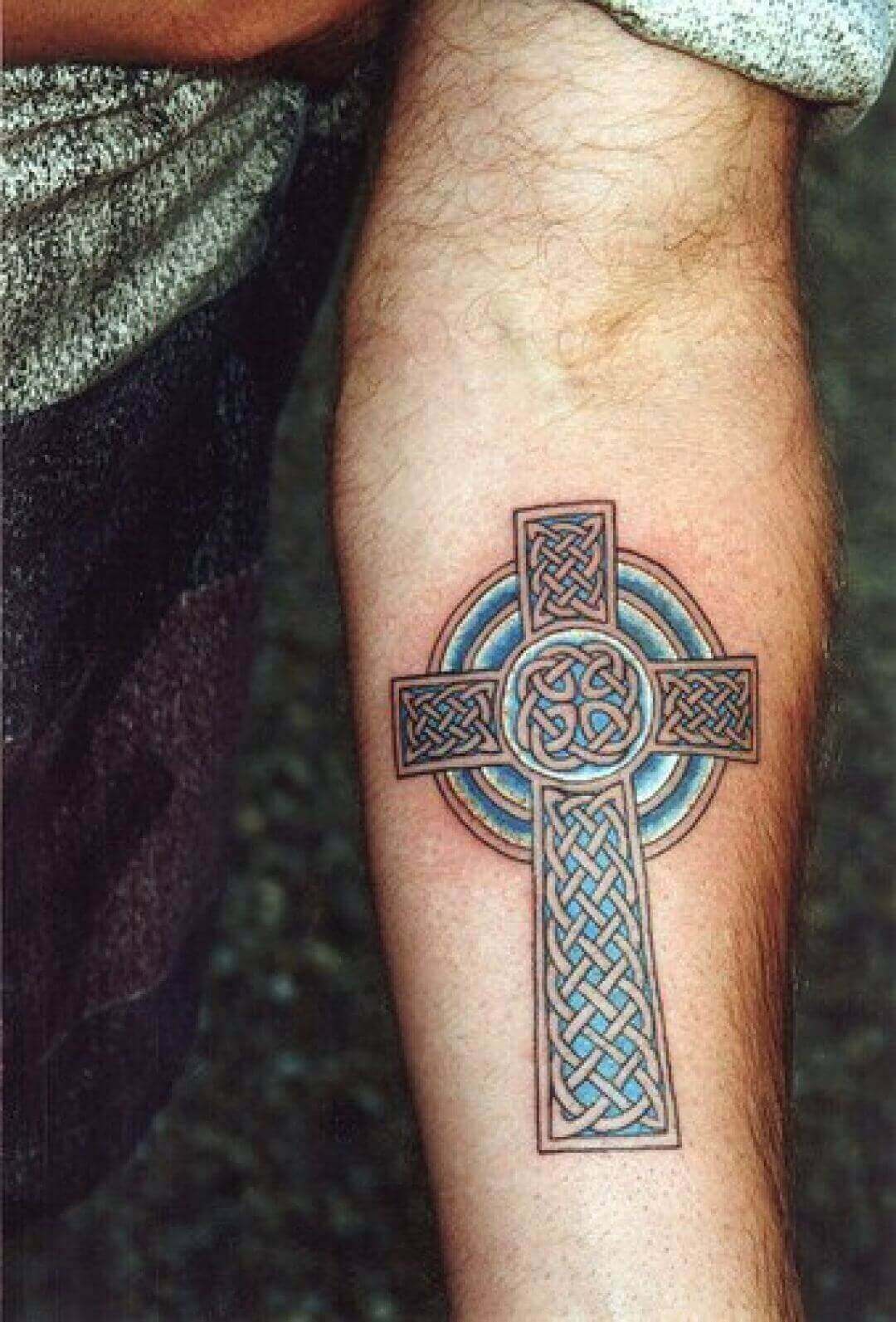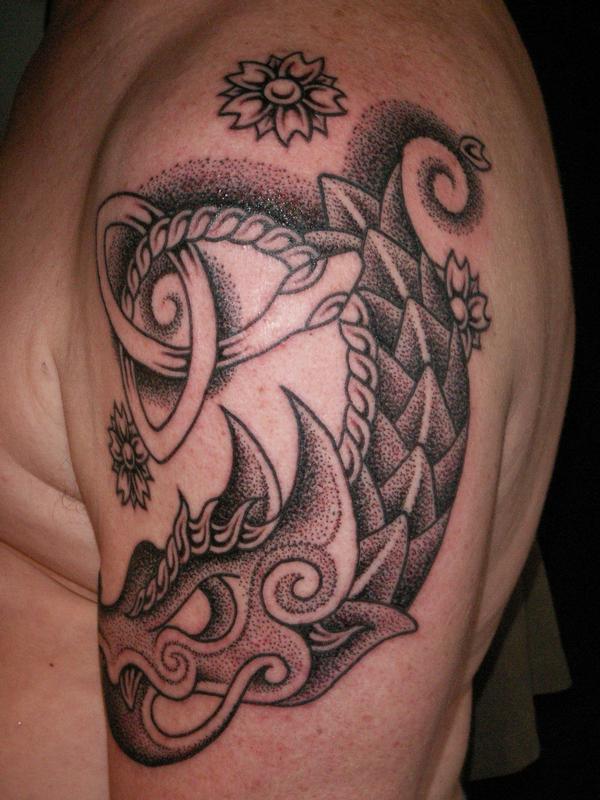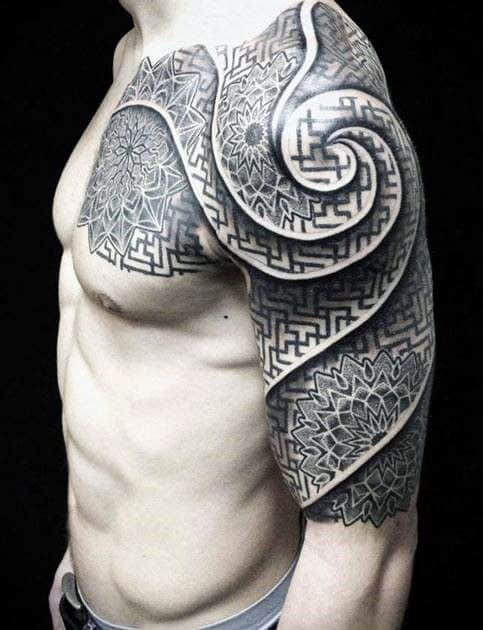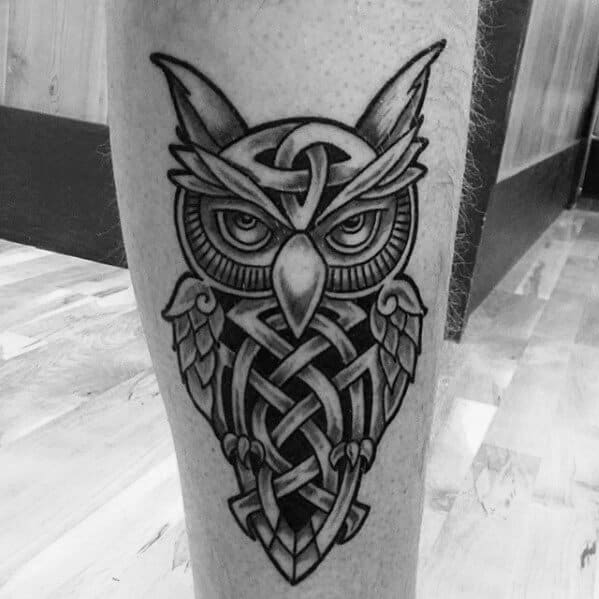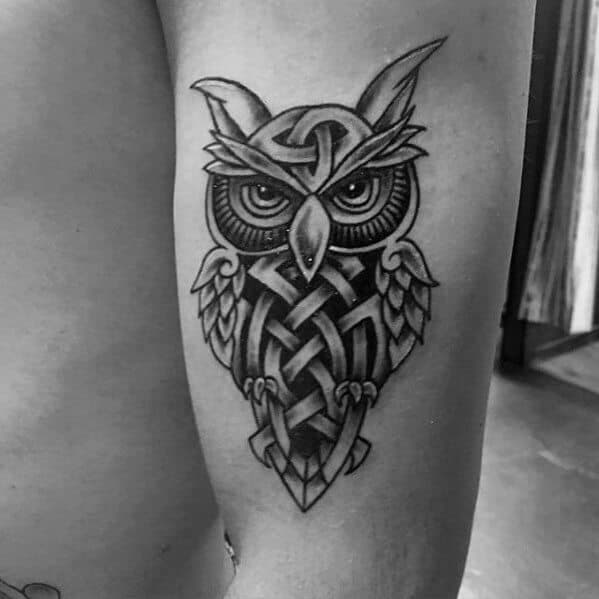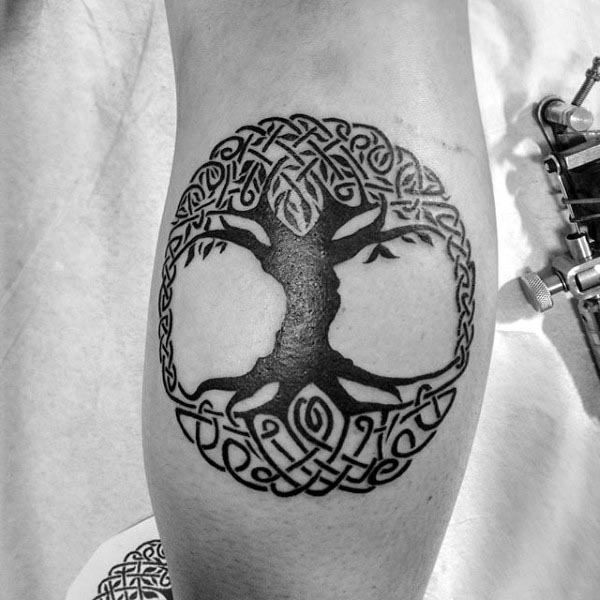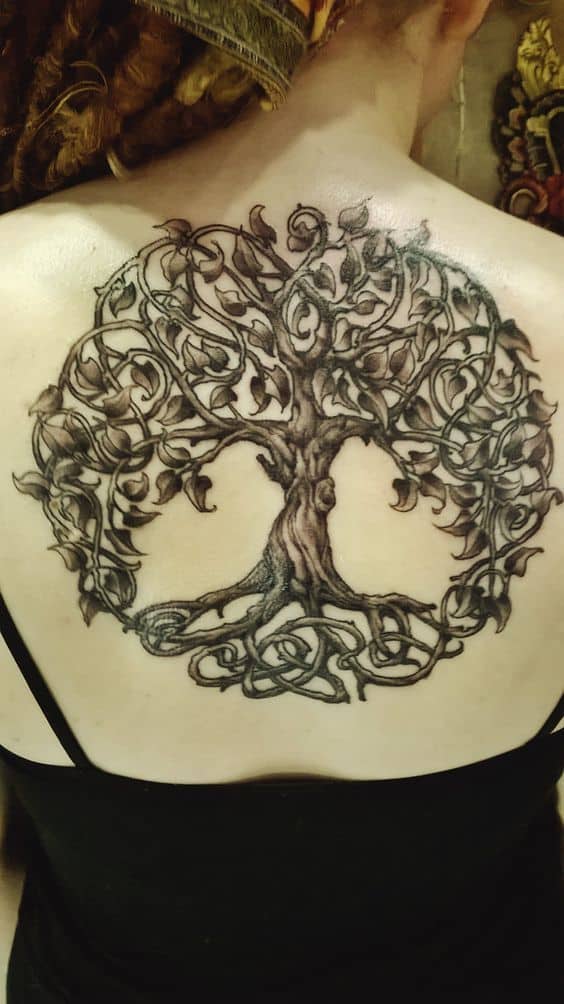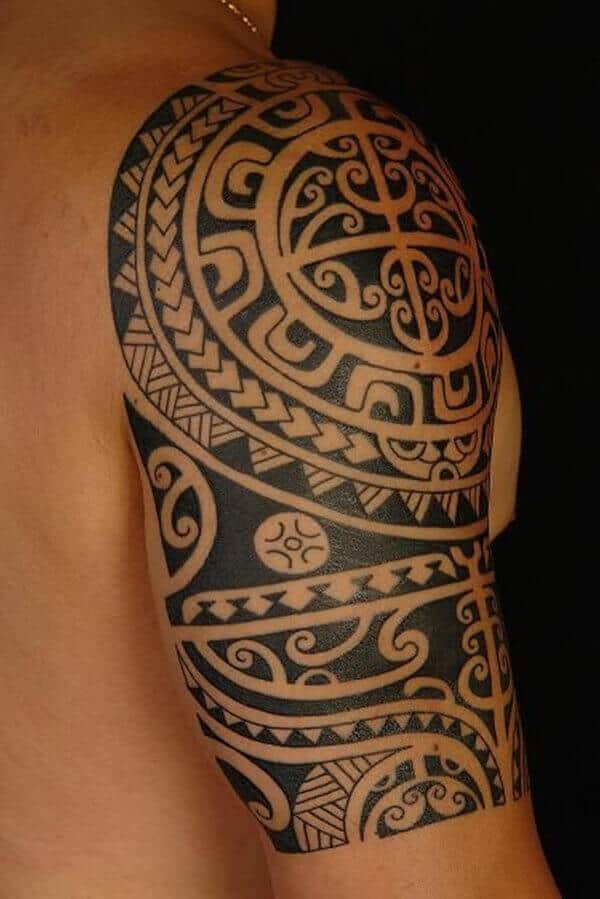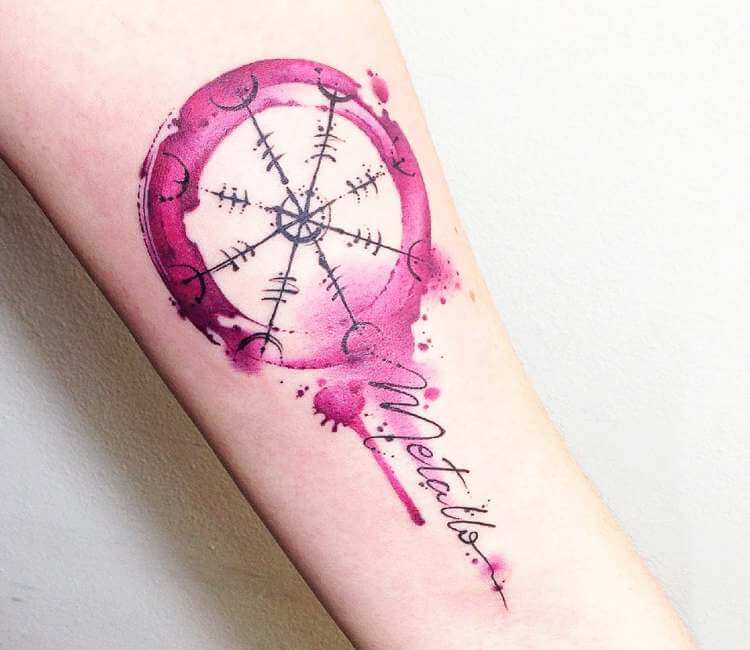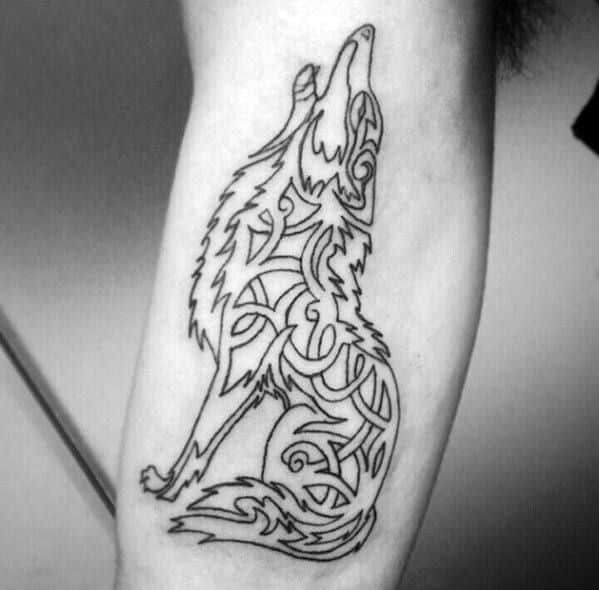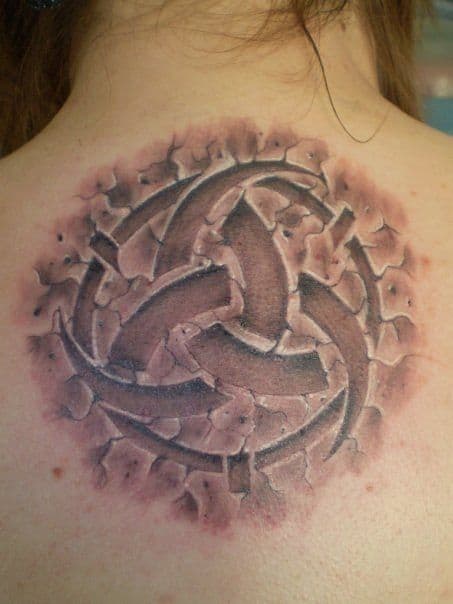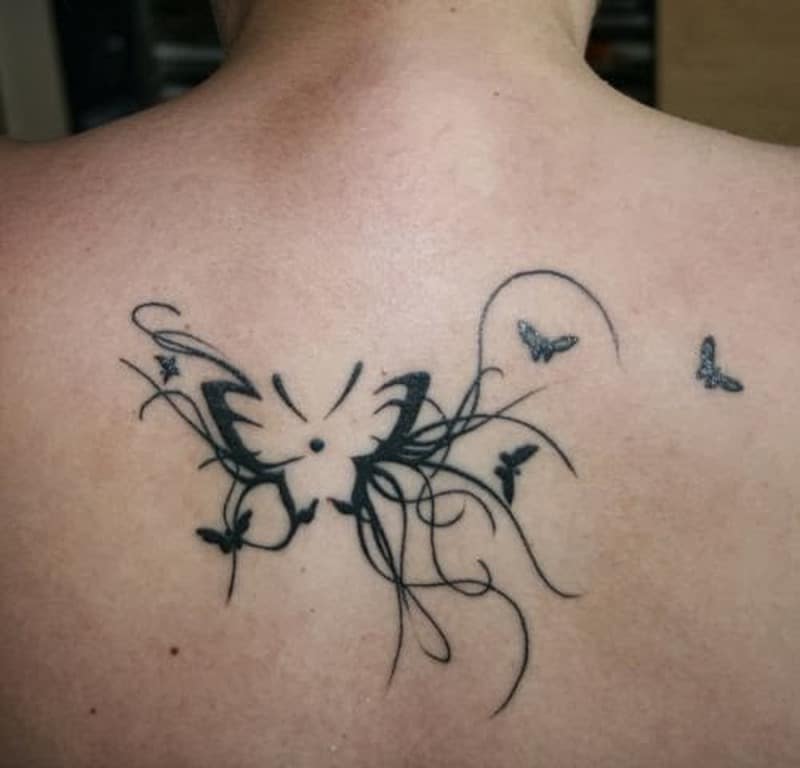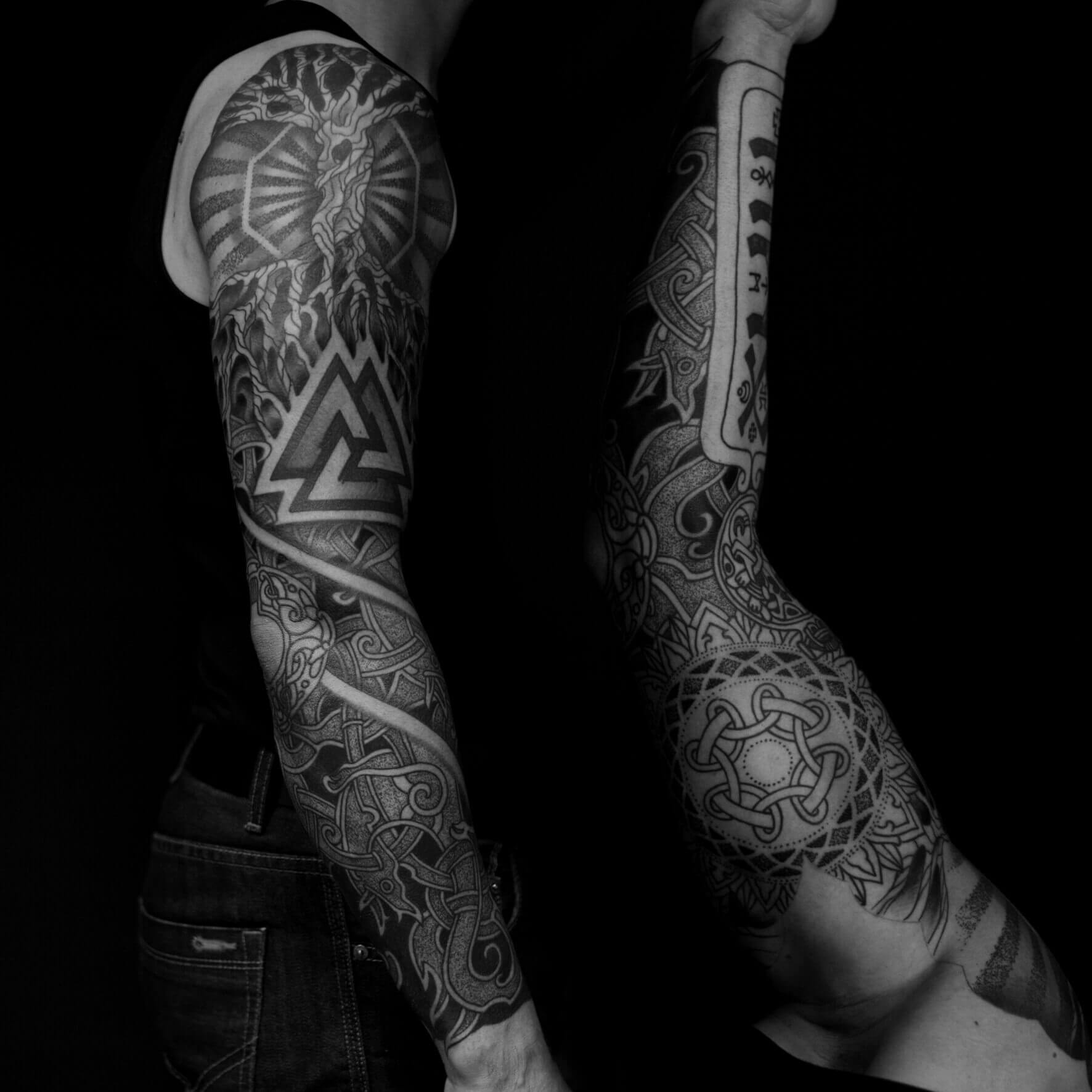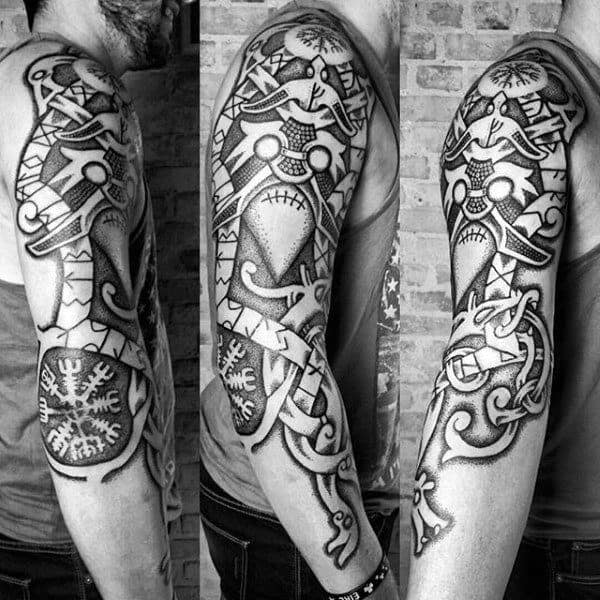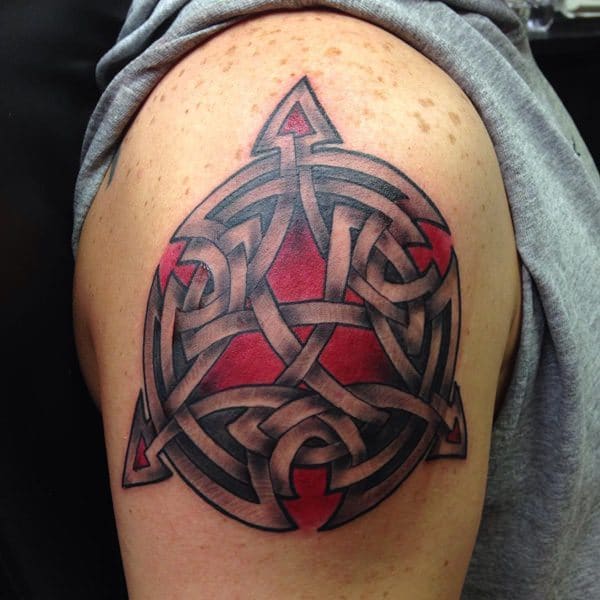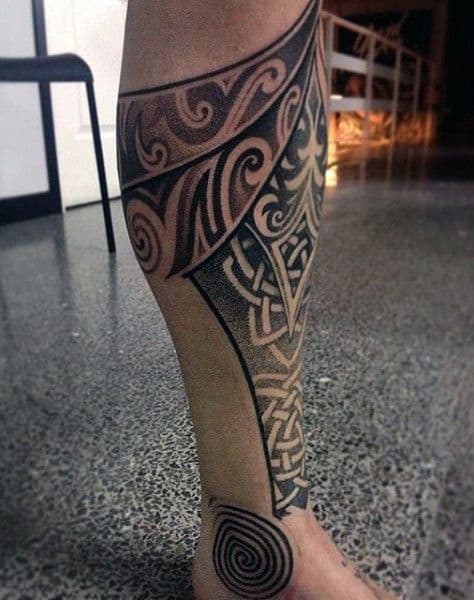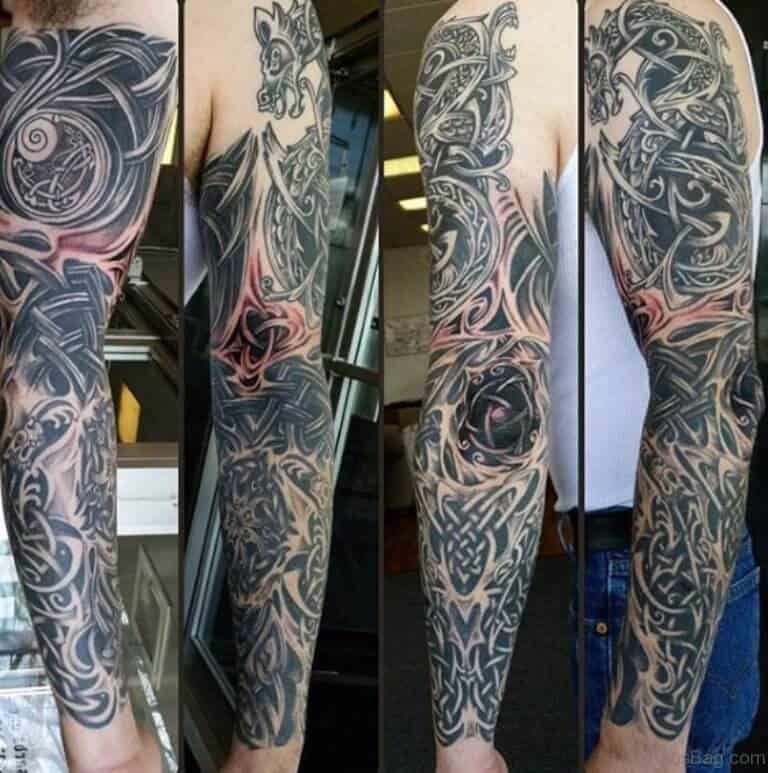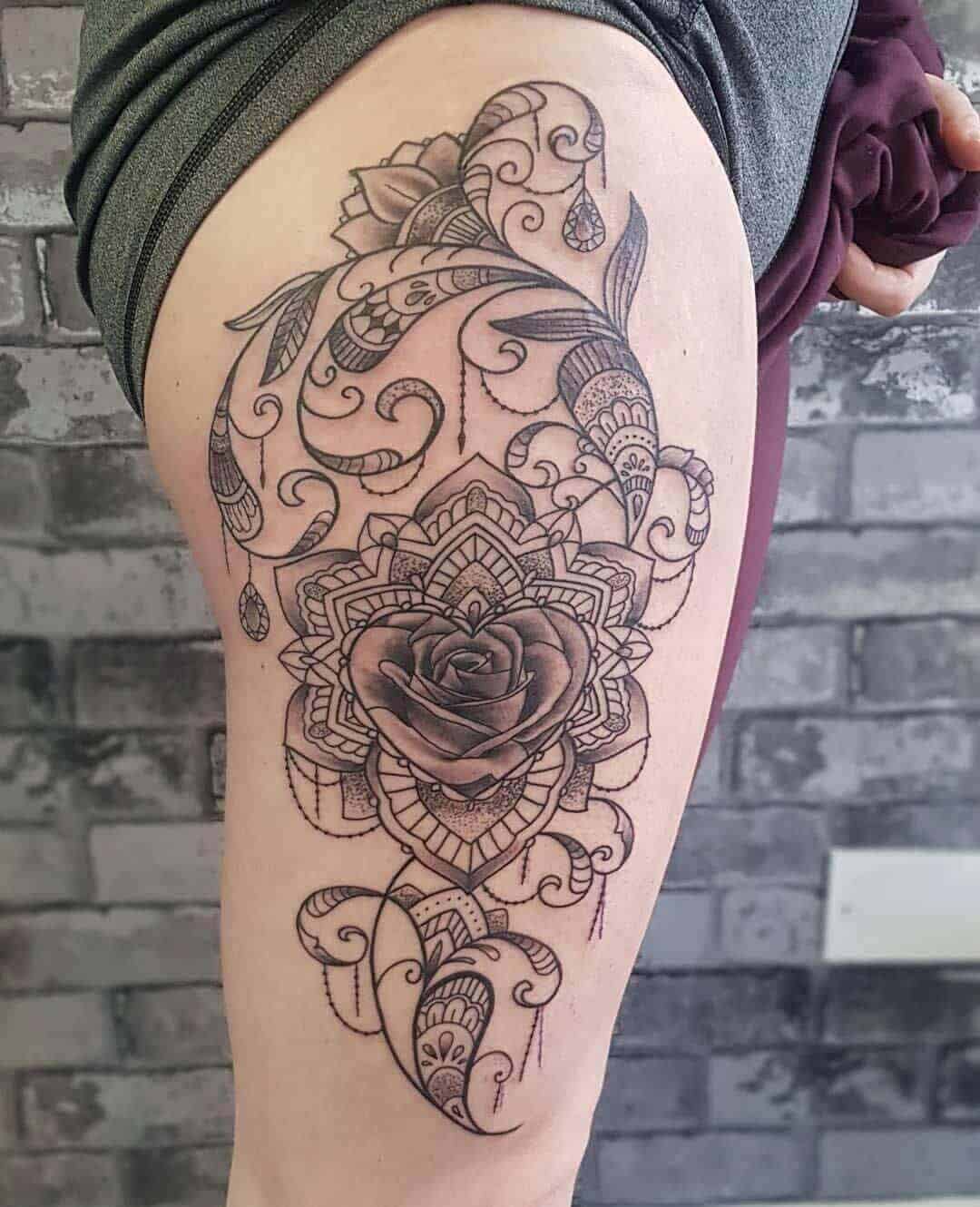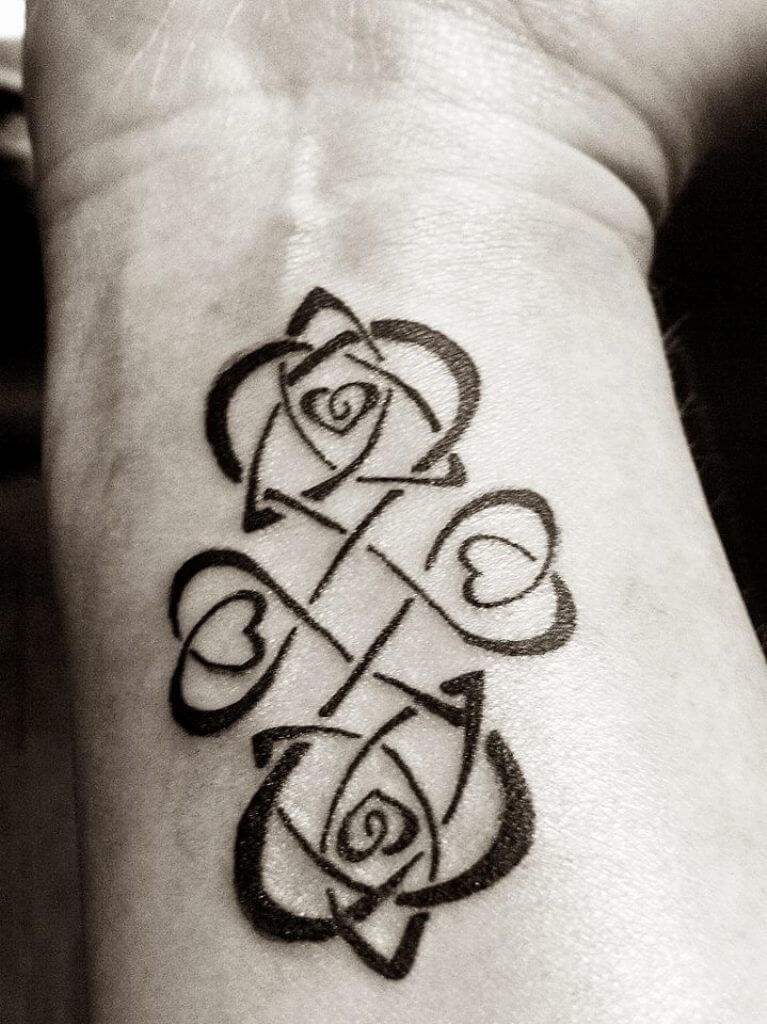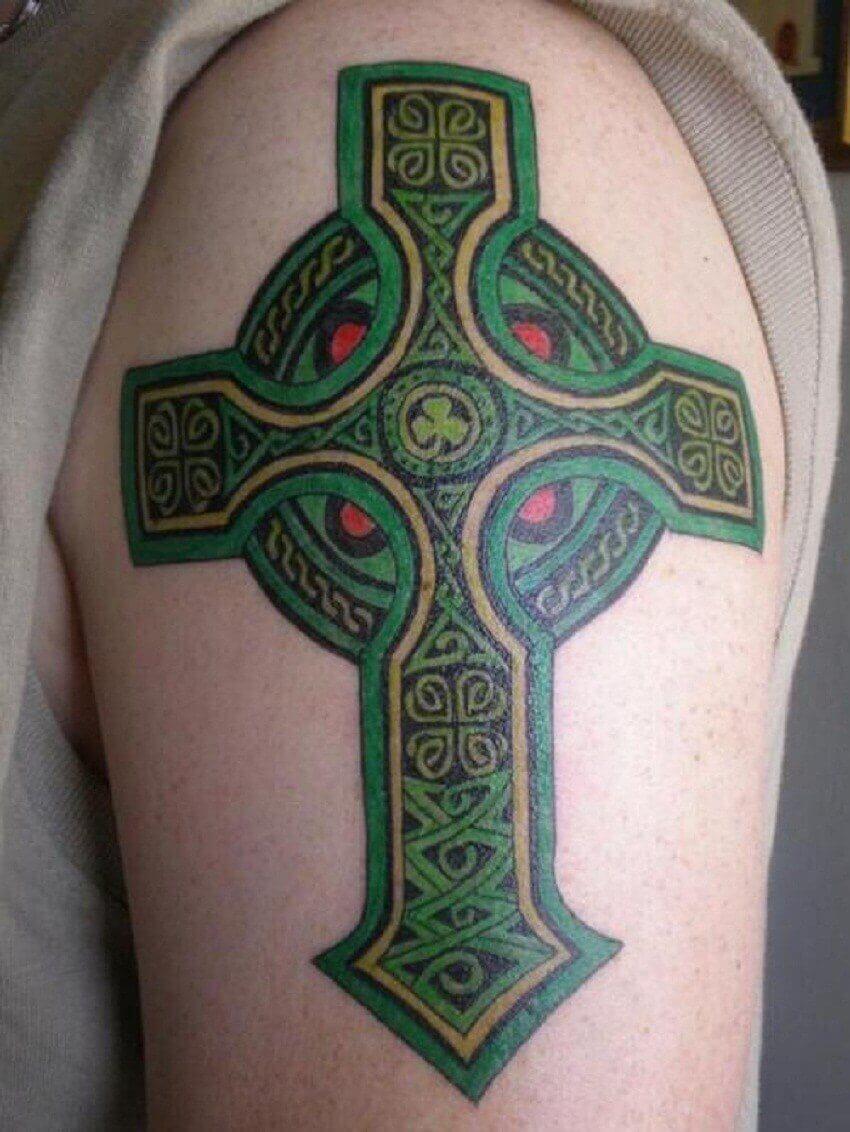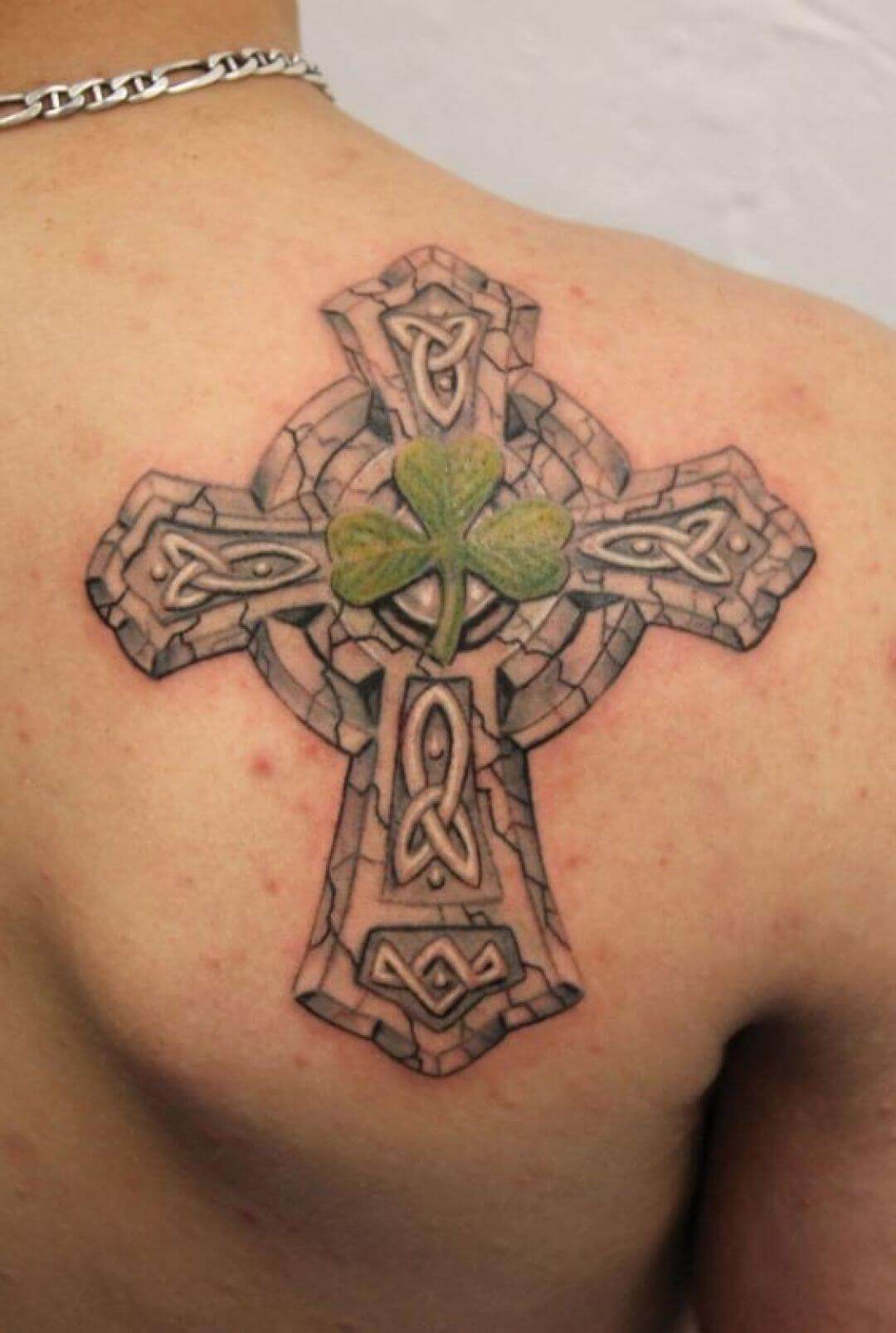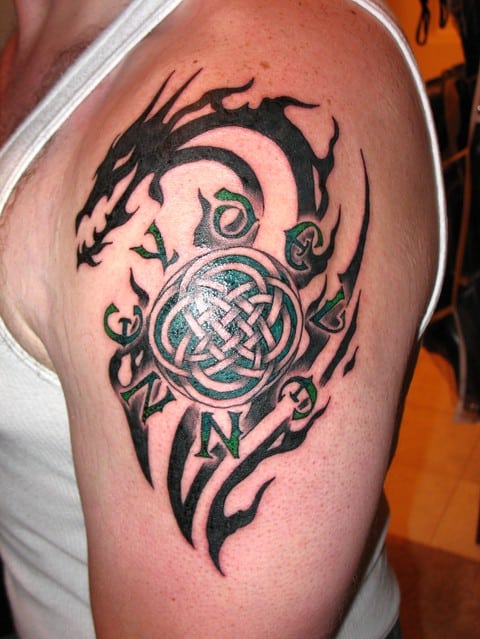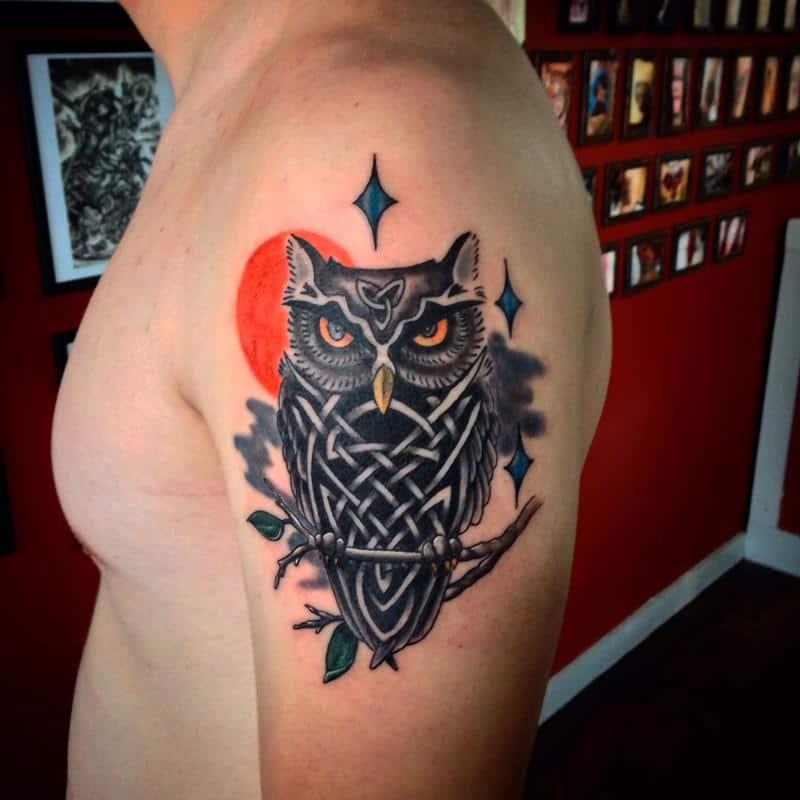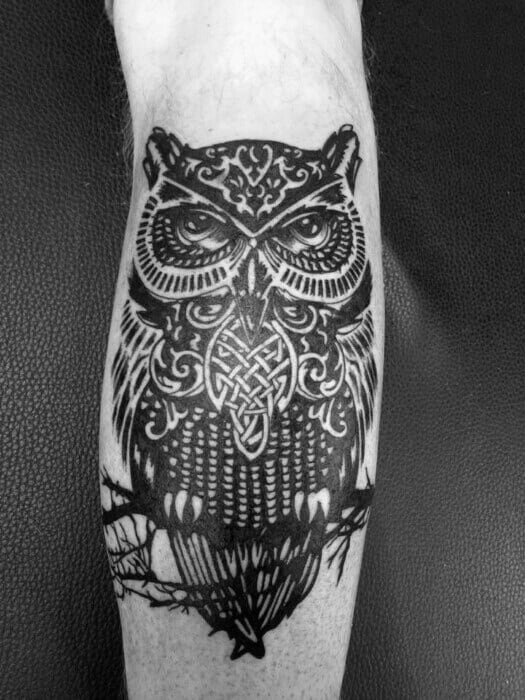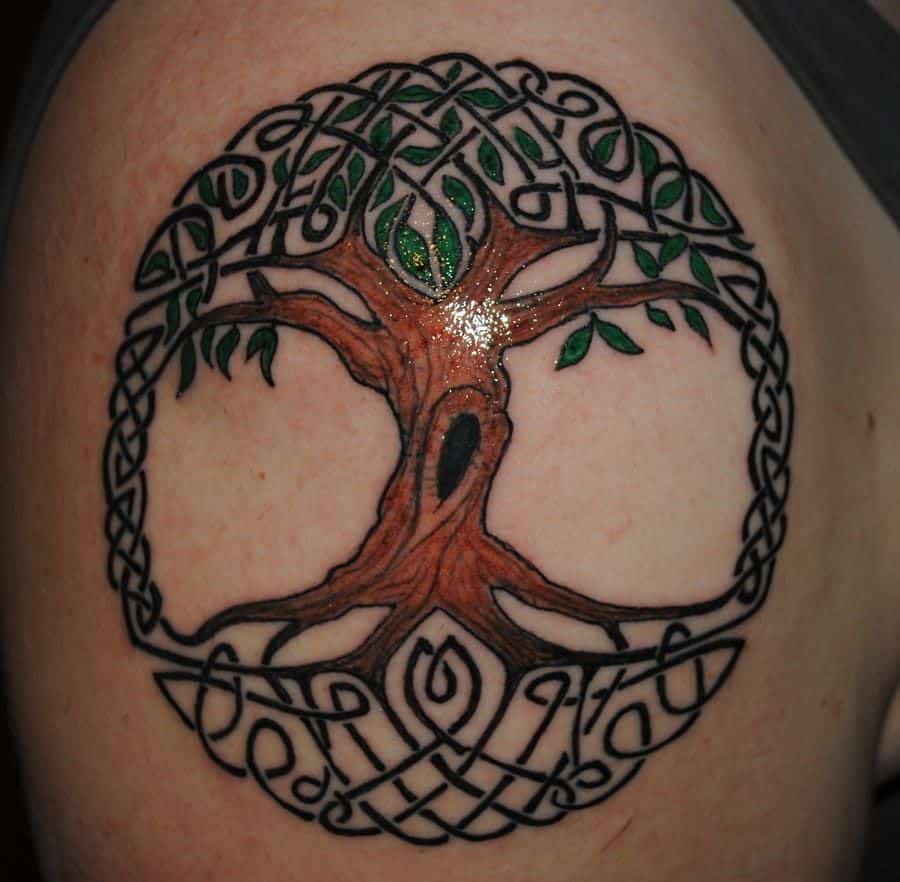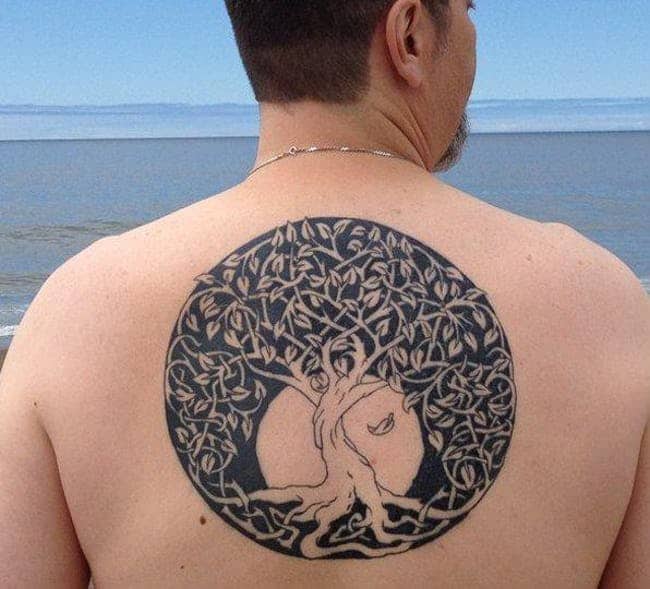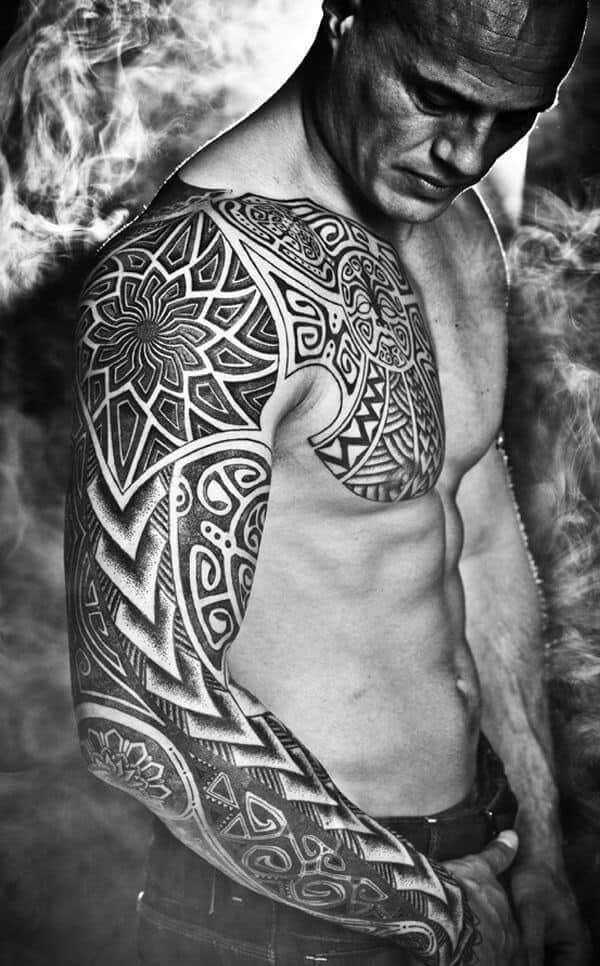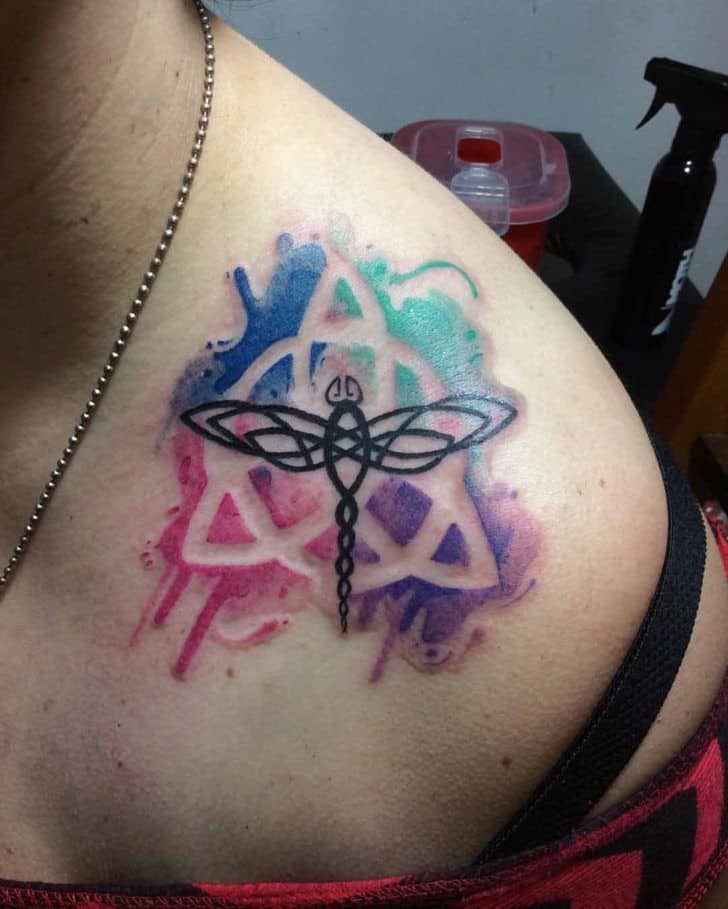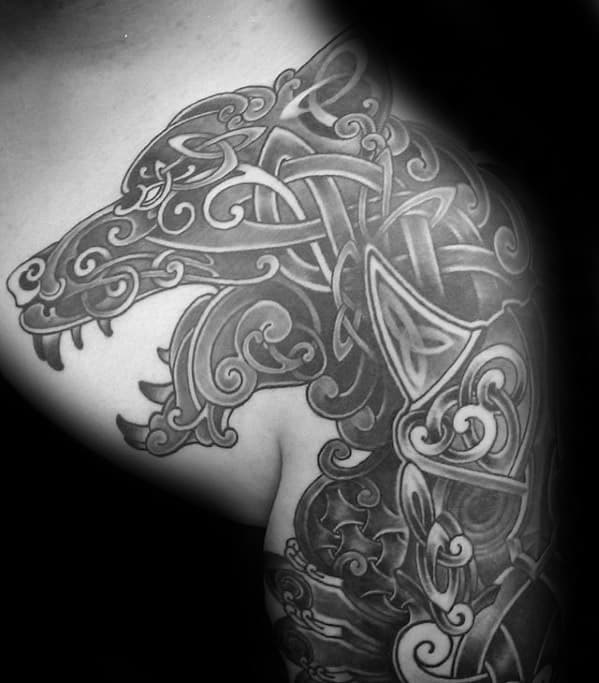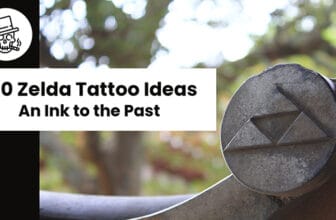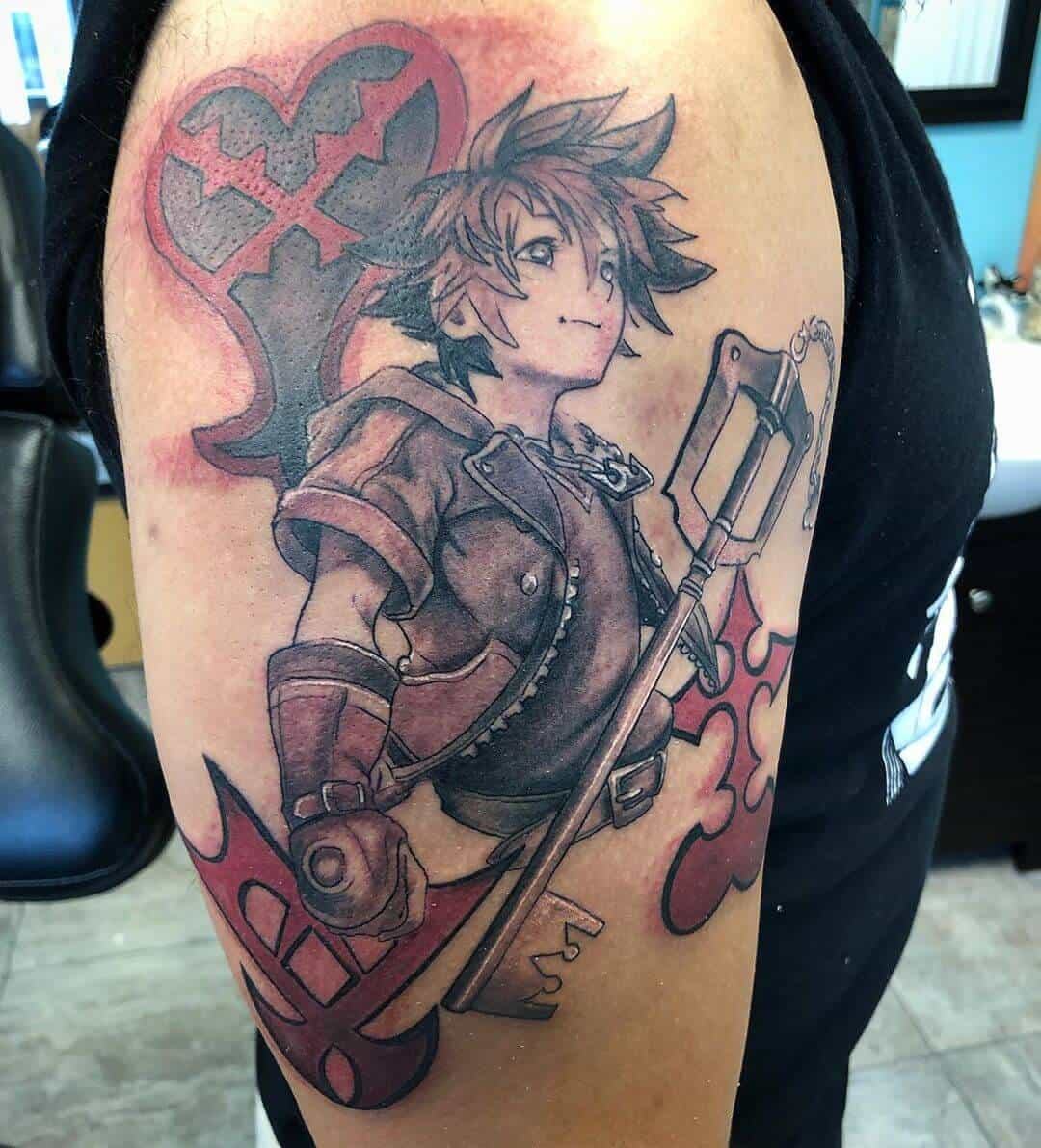Considering a celtic style tattoo? Read on to see some of our favorite interpretations of these awesome tattoos.
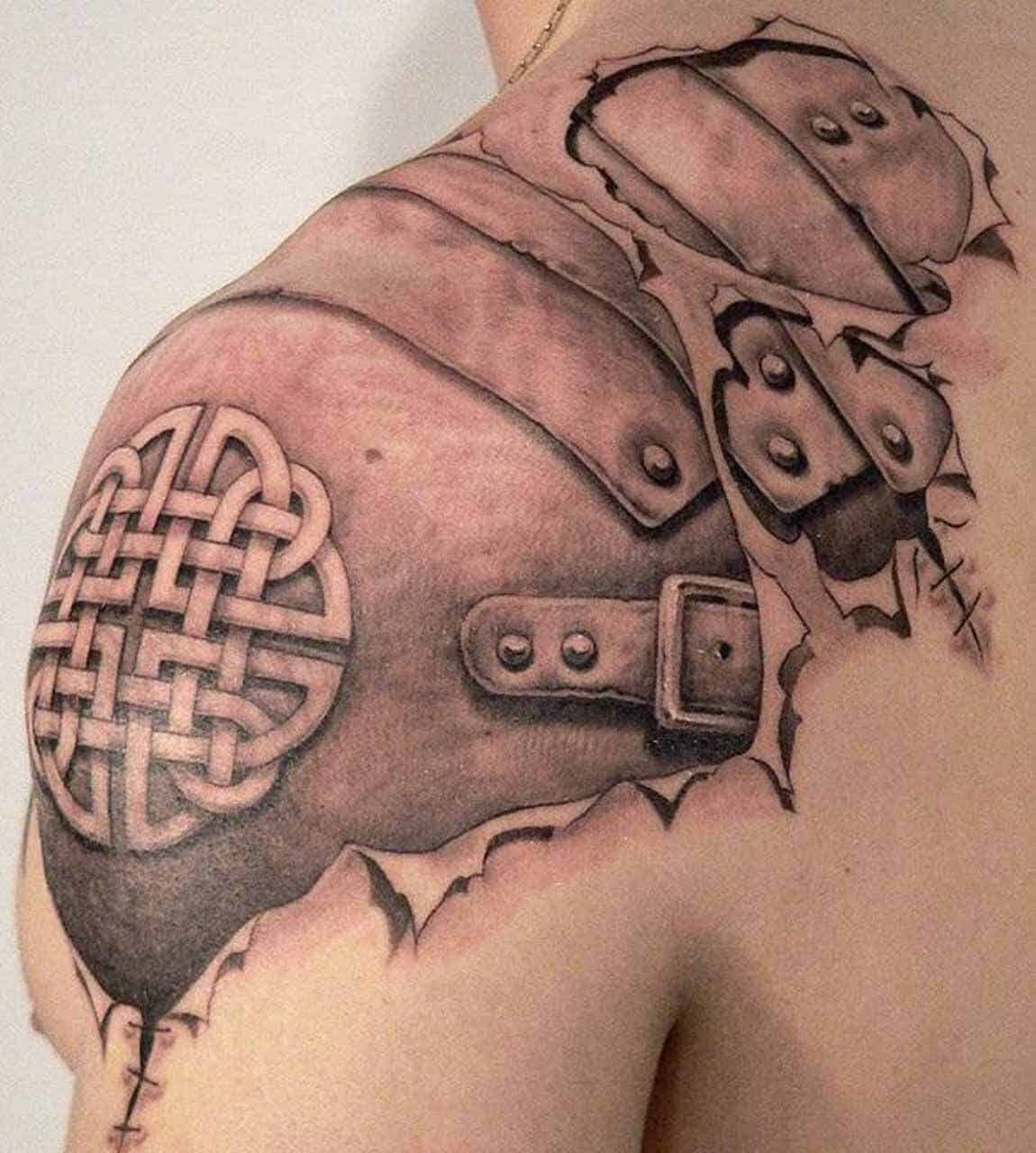
Celtic tattoos were very common among Celtic warriors due to their belief that tattoos would frighten and intimidate their enemies when facing them in battle.
Battle was something that was taken extremely seriously by the Celts since combat was considered to be a high honor. Warriors fought naked or scantily dressed and this, too, was to intimidate the enemy.
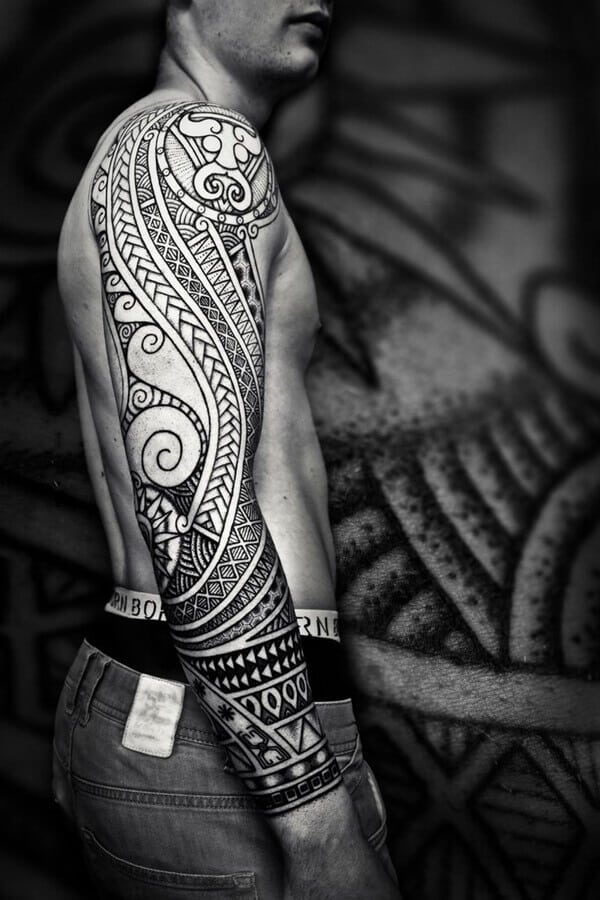
Their hair would be dyed in bright colors and it would be worn in an unusual spiked style high on the head to look even more frightening.
Celtic tribal tattoos were made using the Woad plant. This biennial hardy plant is native to Britain and northern Europe and contains indigotin, a blue dye, which can also be found in the more potent sub-tropical indigo plant that gives the color its name.
Woad was often used in medieval and ancient times for coloring fabric and it was also used to create Celtic tattoo designs.
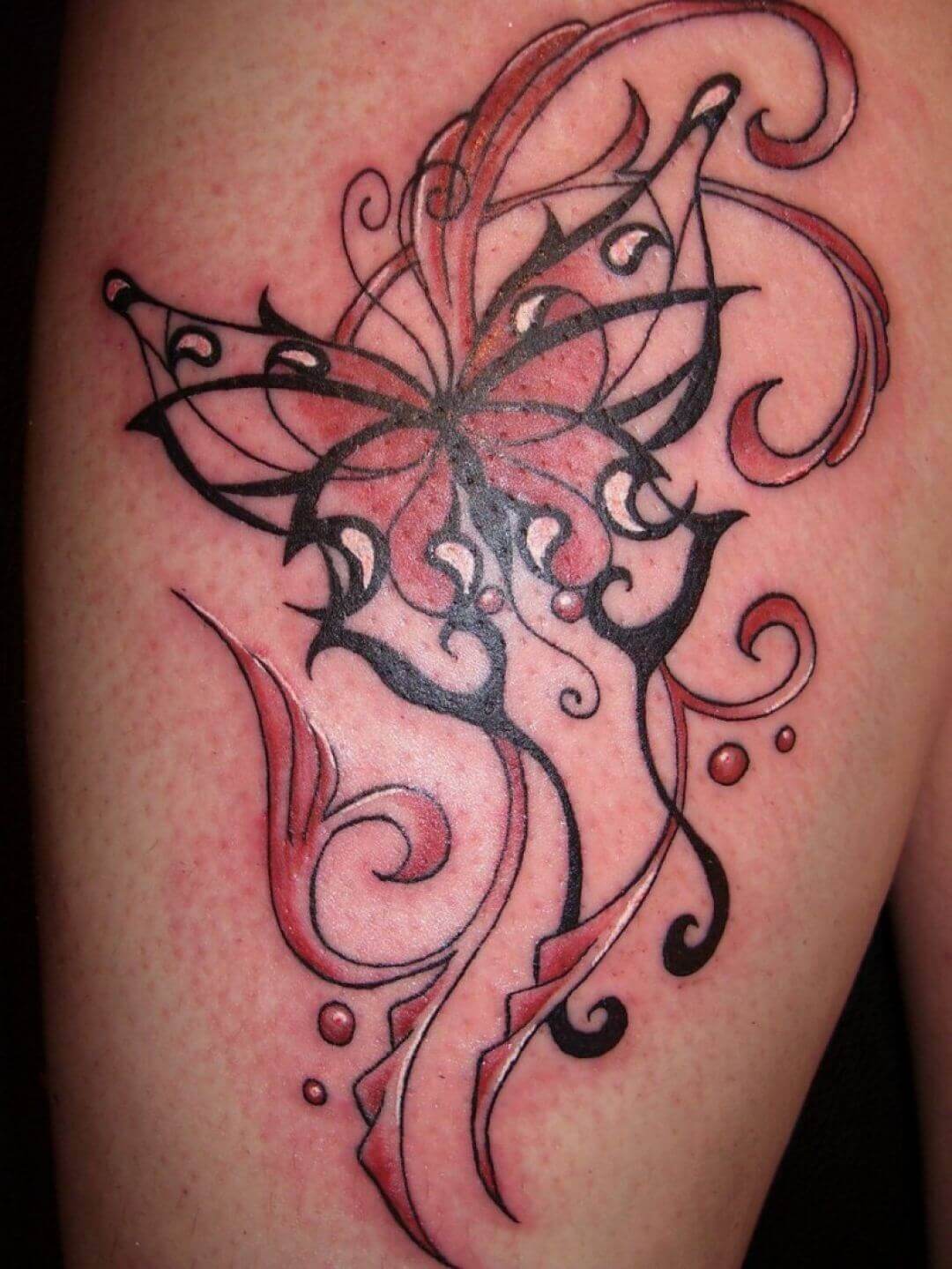
To create Irish Celtic tattoos, Woad leaves were picked then dried before being boiled several times. Once the water had become sticky and thick, it was used with a needle-like instrument to deposit the dye under the surface of the skin to leave a permanent pattern.
Gaelic tattoos were traditionally not representational and didn’t show any specific characters or words. Instead, they were made up of intricate and interweaving lines that formed a complex cyclic pattern. Irish tattoos have a long history.
Recommended: Check out our guide to Saint Michael tattoos next!
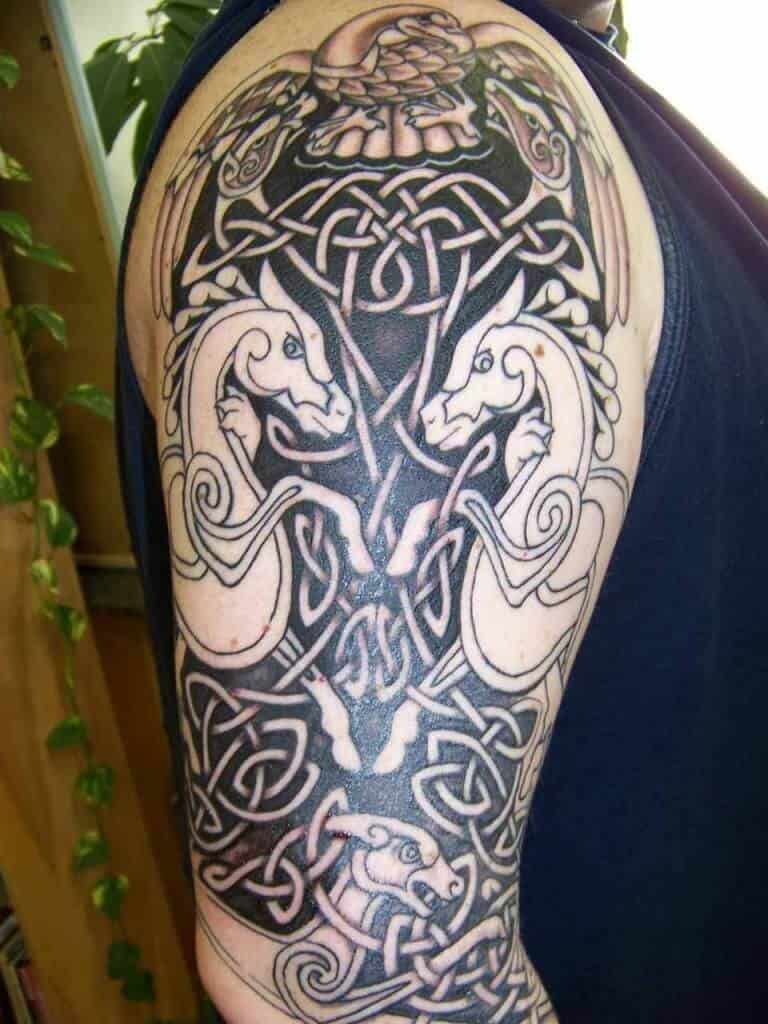
The earliest known examples date back to around 700 BC. These early designs had a strong tribal look and used geometric designs with repeating patterns. As time went on, the designs began to evolve, showing spirals and more organic shapes.
The latest examples of Celtic tattooing date to around 1000 AD. Knotwork and Christian symbols date from this era and these are some of the most easily identified Celtic symbol tattoos.
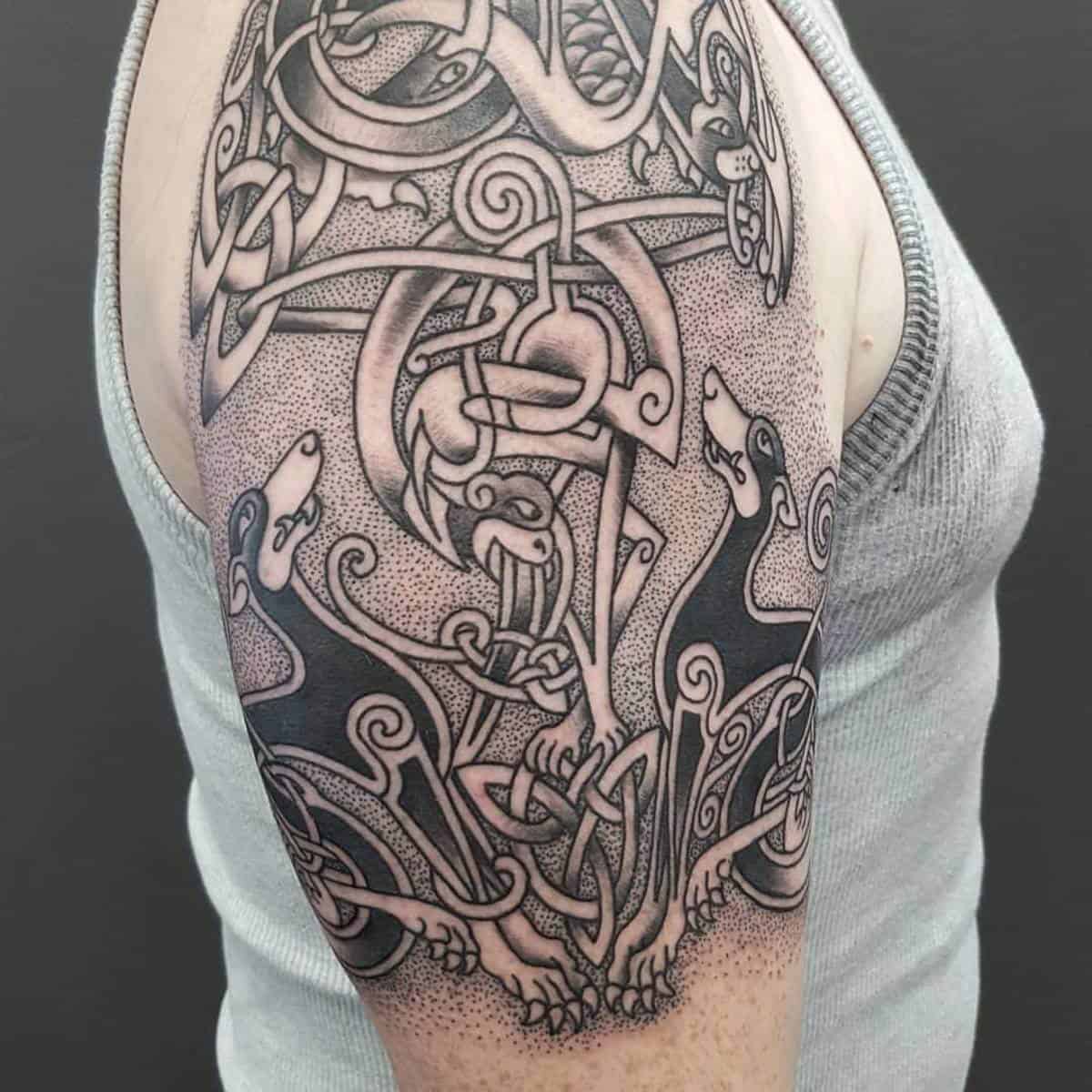
Celtic Symbolism
Ancient Celtic tattoo sleeve tattoos designs were filled with elaborate knotwork, interlacing patterns, animal shapes, spirals, and color.
Early Celts used the same symbols and patterns throughout all of their artwork forms including jewelry and metalwork.
Warriors often chose symbols that represented power and masculinity. The Celtic knot tattoo frequently appeared on warriors’ arms and chests, and animals, too, were very symbolic, representing courage, ferocity, and protection.
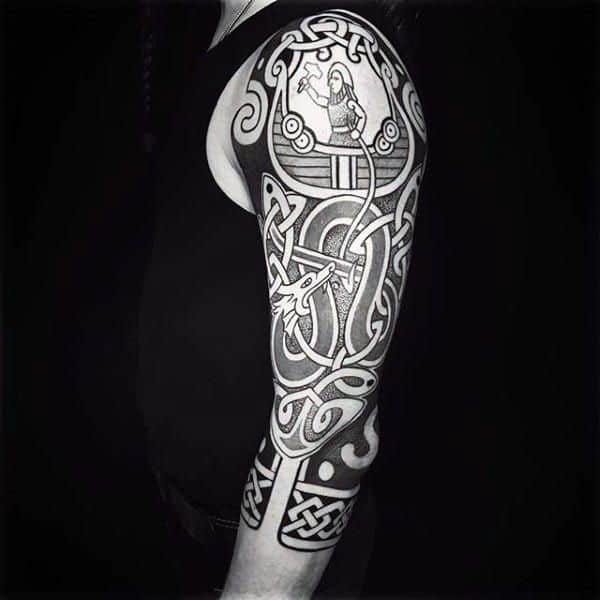
The meanings of Celtic symbols vary depending on which culture is being examined. After all, the word “Celtic” applies to numerous cultures across Ireland, Britain and northern Europe.
Some symbols are overarching across all of those cultures. Groups of three, sometimes found in the form of a triple spiral, are one example of a symbol found in all types of Celtic tattooing.
Recommended Reading: Check out our guide to the spider tattoos next!
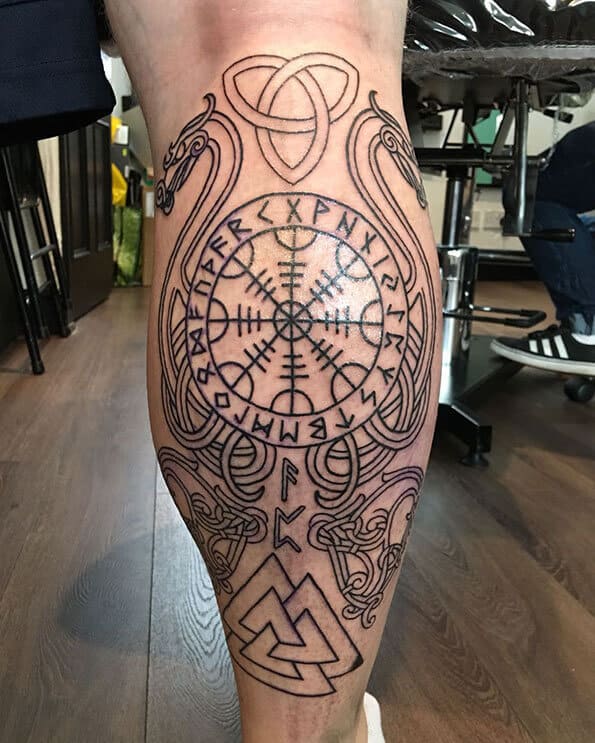
A number of other symbolic shapes were used in the tattooing of warriors.
Geometric shapes, triple, double and single swirls and trinities were other well-known and often-seen symbols that were inked onto the body to display organic energy and the power of nature.
Later, during the Christian era, the Celtic cross tattoo emerged, possibly again as a form of protection in battle.
Brave warriors were proud of the wounds that they received in battle, and wore their scars proudly. Tattoos were sometimes used to emphasize those scars, with artful and intricate patterns that would draw attention to the wound.
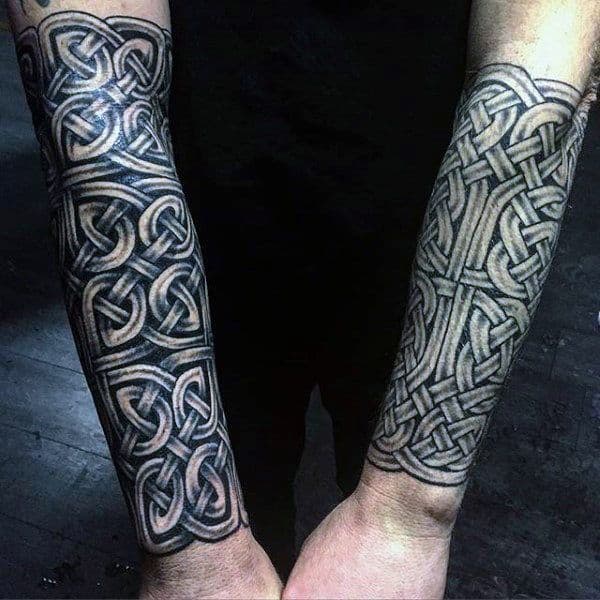
The Celts used tattoos for many of the same reasons that we use tattoos today. They were keen to mark themselves as being strong and part of a clan, but they also wanted to identify themselves, their own beliefs and their spirituality.
The Celtic band tattoo may be most commonly associated with warriors, but these symbols aren’t gender-specific. Women, too, can choose Celtic tattoo designs and, indeed, many zodiac and religious tattoos with Celtic inspiration are popular with females.
The majority of Celtic-inspired tattoos are actually gender neutral since they’re based on knotwork – a mix of interlacing lines and shapes.
Representing the balance of opposites and the eternity of nature, these symbols are ideally suited to both men and women. The ongoing spirals and loops were believed to have protective powers – something that both genders can benefit from!
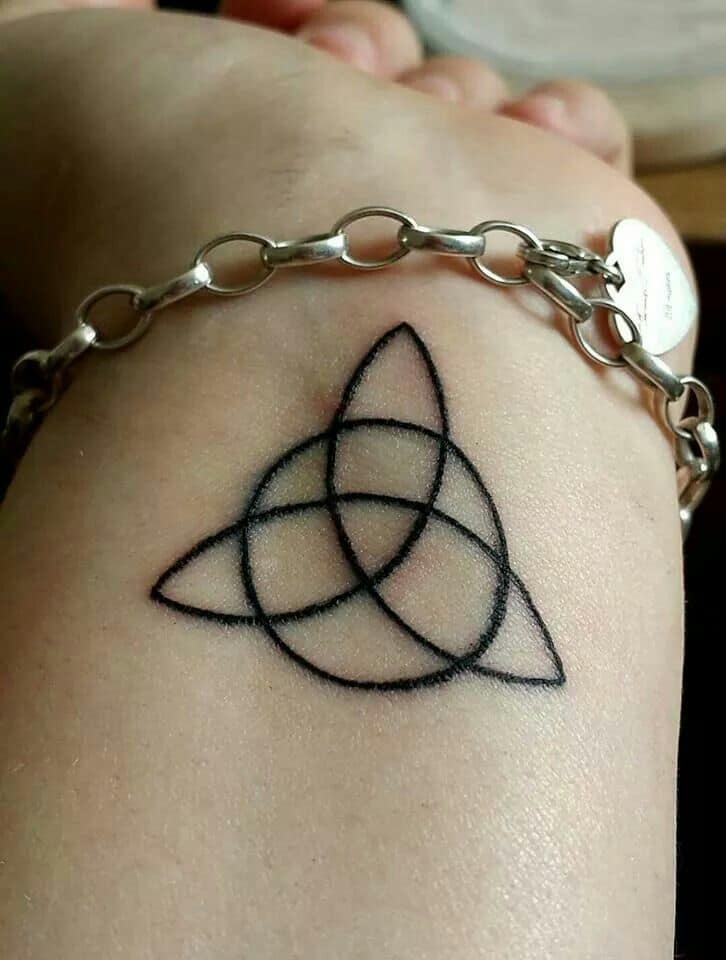
Why Get a Celtic Tattoo?
There are many reasons to consider getting a Celtic-inspired tattoo.
For some people with Celtic heritage, whether Welsh, Scottish or Irish, this type of tattoo is an excellent way to demonstrate their pride in their culture and heritage, reaffirming the ancestors’ artistic style.
Others are keen to use the symbolism found in this type of tattooing because it strikes a chord with them for various reasons.
Recommended: Don’t miss our ultimate guide to men tattoos.
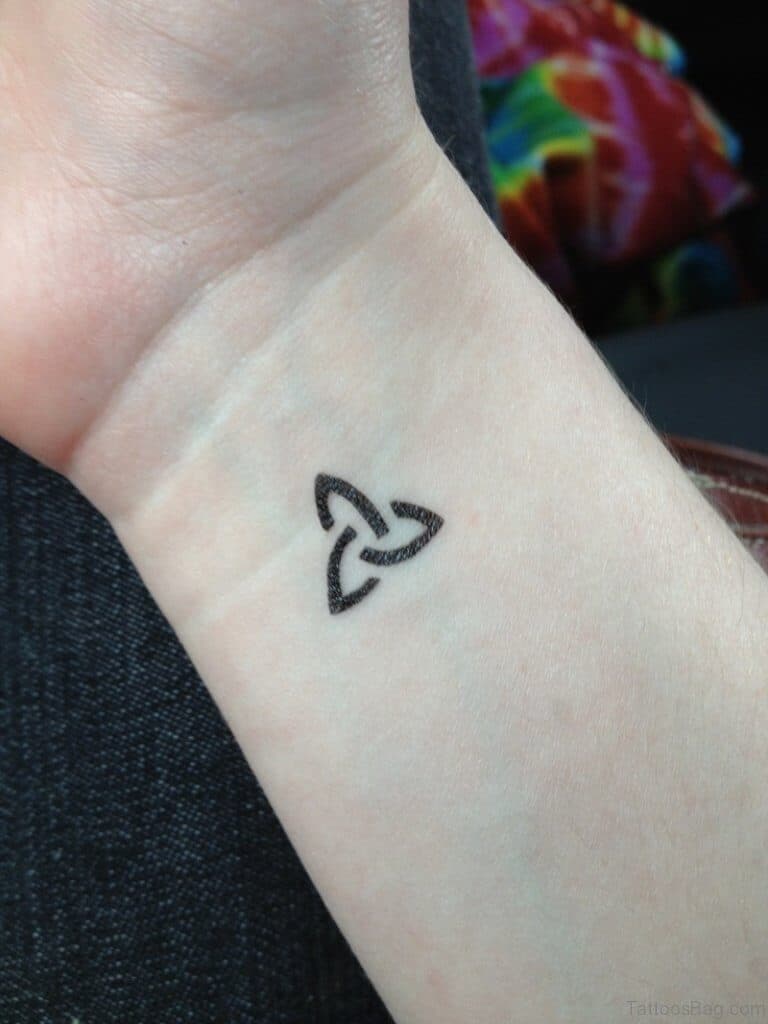
For example, the trinity symbols are often used by mothers and daughters as matching representative tattoos to cement their relationship.
The Celtic cross tattoo is sometimes used by Christians to emphasize their faith and beliefs in a visual and beautiful way.
However, there are many people who choose tattoos inspired by Celtic patterns and symbols simply because of their beauty and uniqueness.
It isn’t always easy to find a tattoo that looks beautiful but which also has symbolism and meaning behind it.
A Celtic-inspired pattern can achieve this goal easily, bringing with it heritage and culture as well as a stunningly intricate design that looks stunning on any part of the body.
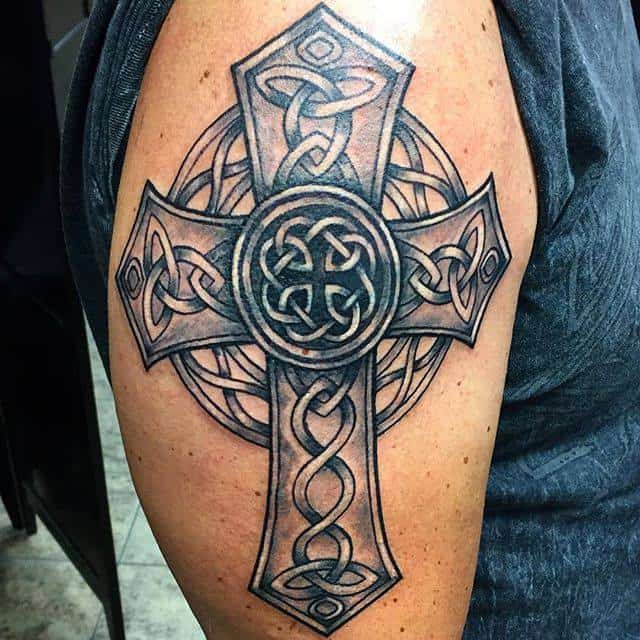
Types of Celtic Tattoo
There are many types of tattoo that take their inspiration from Celtic culture and history. However, some are more commonly seen than others.
Knots are some of the most frequently used Celtic symbols in both male and female tattoos. Although numerous cultures create designs that use knots, it’s likely that all of them originate from the Celts.
The “trinity knot”, also known as the Triquetra, is a Christian form of the Celtic knot which came from Germany.
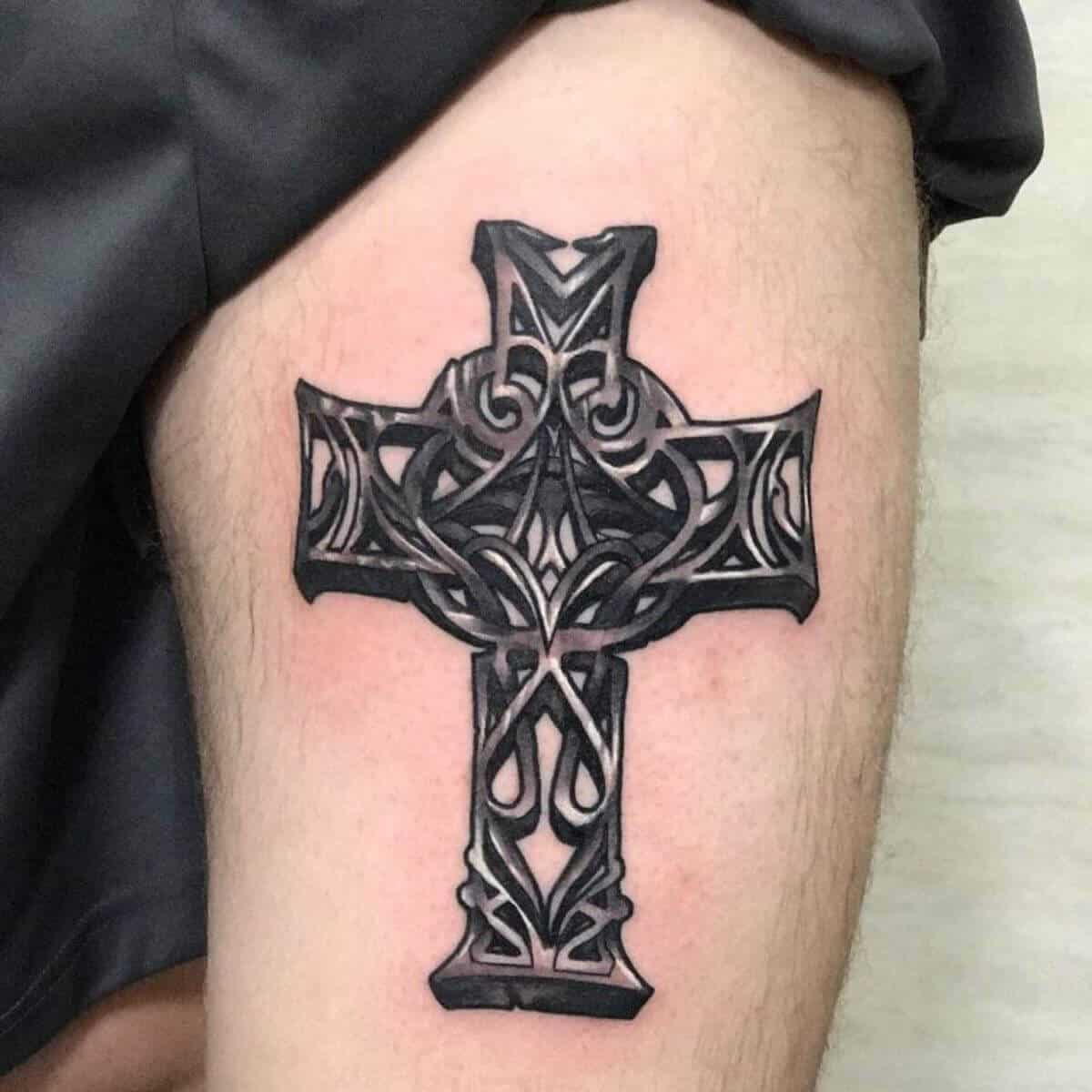
Another popular form of the Celtic knot features three points and has a circle that runs through it. This is the symbol that represents family. Over time, Celtic knots became increasingly intricate, and this had led to some truly stunning tattoo designs.
Some feature animal interlacing. This is similar to a regular knot but each cord terminates in a tail, an animal head or animal feet. The knot should always have no end unless its loose strands have stylized animal elements or spirals.
Knotwork has a very deep meaning, and its repeated crosses express both the spiritual and physical through their interlacing. They are believed to show the circle of faith, love, and life.
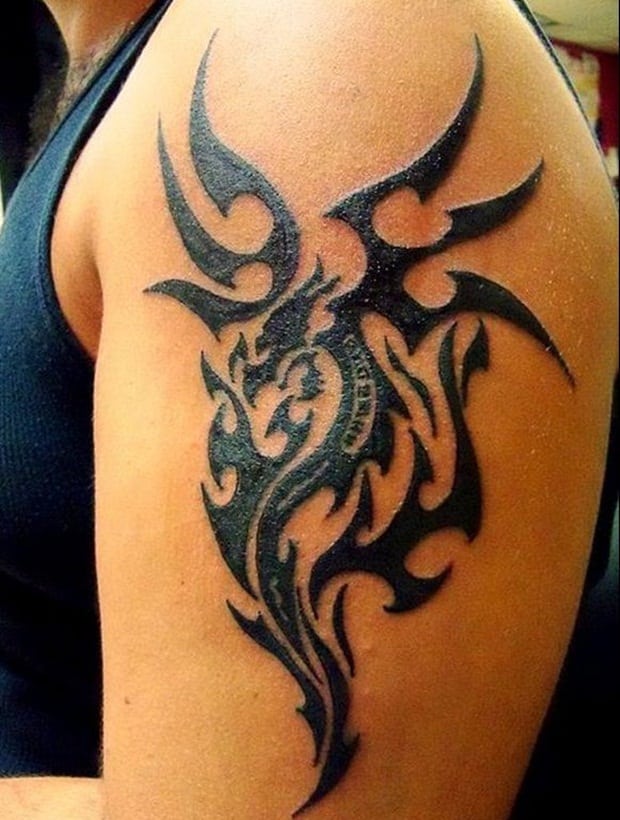
The Claddagh symbol is another popular Celtic design that can be incorporated into tattoos. It is the symbol representing love, showing two hands that hold a heart topped with a crown and connect with a braided knot.
The shamrock also features in Celtic-inspired tattoos. With its three leaves it is a recognizable symbol that is often seen together with other Irish symbols like the harp which has long been the Celtic national instrument.
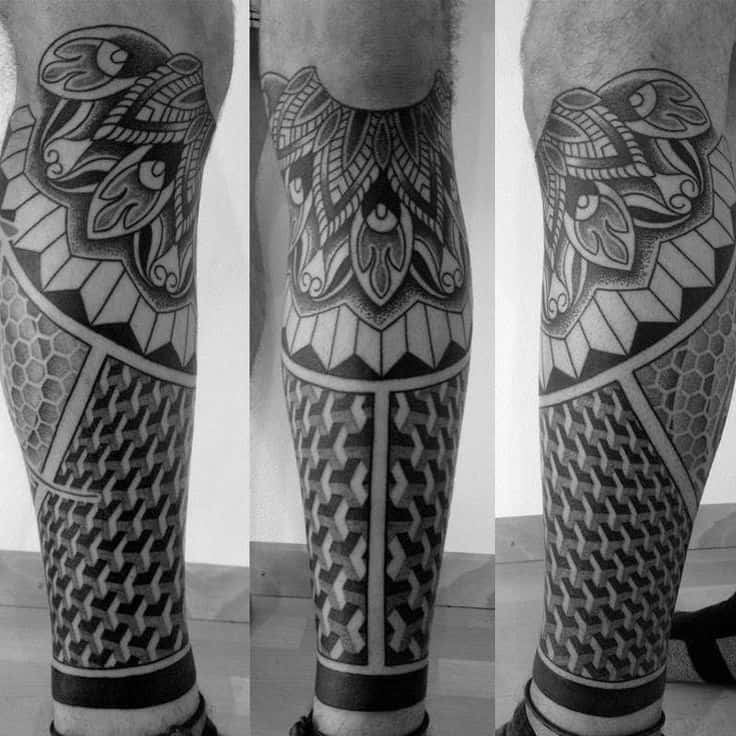
Some Celtic tattooing symbols date from the later part of their culture’s history when Christianity had begun to pervade.
Monks during the 7th century adapted their existing Celtic artistic forms to their new faith, and so the Tree of Life and the famous Celtic cross appeared.
Recommended Next: Looking for face tattoo ideas? Check out our guide!
This cross is also a symbol of the four periods of the Celtic year with its four key festivals, Imbolc, Samhain, Lugnasadh and Beltaine.
The cross itself is composed of knots with no end, merging the artwork of the traditional and ancient cross with the later Christian period.
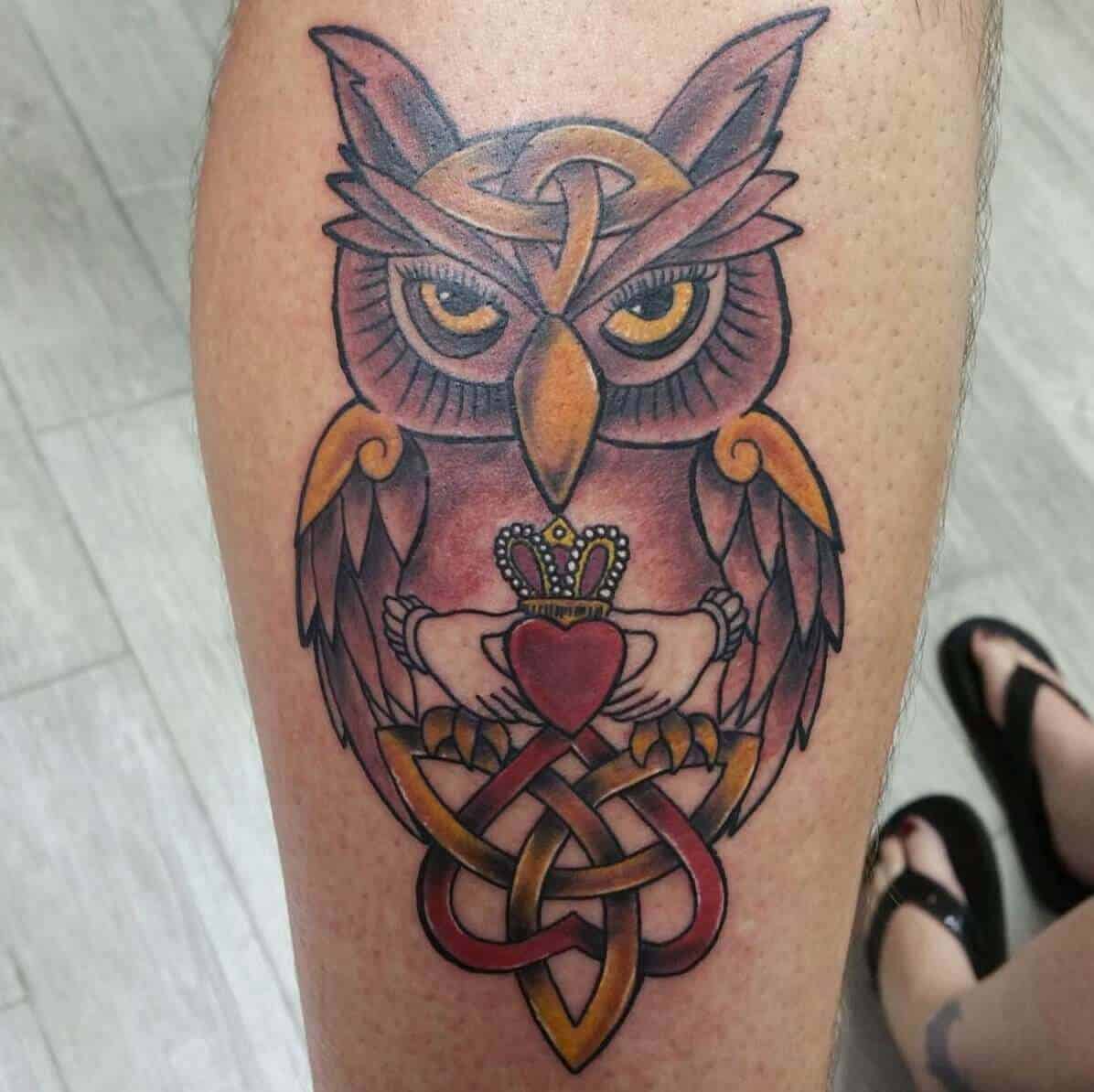
The Triskel is one more popular Celtic symbol that regularly appears in tattoos that have taken their inspiration from this culture. This figure is made up of three spirals to signify the human soul’s three-layered nature.
The triskel, or trinity as it’s sometimes known, may represent the earth, the sea and the sky and show the importance of natural elements in the world around us.
Many of the most beautiful Celtic tattoos combine all of these symbols in one gorgeous design.
